How Michigan Gov. & Universities May Have Enabled Konnech CCP Espionage
Michigan has a long standing and startling history of ties to the Chinese government
By now many people have heard about Eugene Yu, the CEO of Konnech, who was arrested on conspiracy charges and for sending sensitive U.S. election data to the Chinese government. At this point, Eugene Yu’s connection to the Chinese Communist Party and the Chinese government has been well documented, proven and established. What isn’t as widely known yet are the circumstances in Michigan which appear to have paved the way for such a blatant act of alleged espionage to take place right under our noses.
When Eugene Yu was expanding Konnech’s reach out of Michigan to “thousands of election offices across North America,” an organization, called the Michigan Economic Development Corporation (MEDC), funded Konnech to lease an entire floor at Michigan State University (MSU). To do so, the MEDC awarded Konnech a grant of $306,000, which was more than half of the $500,000 they claim to give out annually.
You may be asking yourself: Why Michigan State University? What interest would a company connected to the Chinese Communist Party have to lease an entire floor at MSU? One indication might be found in the fact that the MSU chapter of the Chinese Students and Scholars Association (CSSA), celebrates the communist takeover of China, otherwise known as “National Day.”
MSU’s CSSA hosts events with the Consul General for the People’s Republic of China in Chicago, Hong Lei, as a featured speaker. (Lei is also the former Spokesperson for the Chinese Foreign Ministry.)
Hong Lei’s lecture at MSU was even hosted by the Confucius Institute.
The U.S. State department says that Confucius Institutes (CIs) “are frequently staffed by a combination of Chinese scholars, U.S. citizen faculty, and CCP-selected Chinese instructors who teach the CCP’s interpretation of Mandarin and Chinese culture. Most agreements to establish CIs feature opaque nondisclosure clauses; do not explicitly protect academic freedom; and require strict use of a narrow, CCP-approved curriculum.” Furthermore, “ to protect national security, the 2019 National Defense Authorization Act prohibits universities that host CIs from receiving U.S. Defense Department funding for Chinese language study.” Additionally, the U.S. State Department added that “since 2019, the Federal Bureau of Investigation (FBI) has urged U.S. colleges and universities to reexamine ties, stating that CIs pose threats to national security and academic freedom.”
Moreover, “in 2020, the U.S. State Department designated the Confucius Institute U.S. Center (CIUS) as a foreign mission of the PRC, recognizing it as an entity that advances Beijing’s global propaganda and malign influence campaign.”
U.S. Senator Chuck Grassley issued a warning to all universities that house Confucius Institutes. He said that “U.S. Government agencies, including within the Intelligence Community, assert that the Communist Chinese Government uses Confucius Institutes embedded in our academic institutions as a propaganda tool within the United States.” A statement put out by Senator Grassley’s team, said that “at a 2018 Senate Judiciary Committee hearing on China’s non-traditional espionage against the United States, FBI and Justice Department officials testified about threats posed to research labs and universities by researchers with ‘undisclosed ties to Chinese institutions and conflicted loyalties.’ They also cautioned that China encourages theft of intellectual property from U.S. institutions.”
Konnech’s own Facebook page boasted about creating a ‘communication platform’ for the Confucius Institute.
Furthermore, Konnech’s Software Engineer, Wang Xiang, who appears to have built Konnech’s product, PollChief, also managed the website for the Chinese Student’s and Scholars Association (CSSA).
Xiang was a member of the CSSA himself, being among the limited 2% of top elite scholars who are accepted to attend the Nanjing University of Aeronautics and Astronautics (NUAA), where he won an award for “Excellent Student in Military Training.” NUAA is operated by the Chinese government’s Ministry of Industry and Information Technology, it holds top secret security credentials, has many defense laboratories and is one of the “Seven Sons of National Defense,” which according to Wikipedia, is a “Chinese collegiate grouping comprising seven public research universities who collaborate closely with the People’s Liberation Army.” In other words, universities from the Seven Sons of National Defense are operated by the Chinese military.
An Australian government database and advisory, partially funded by the U.S. State Department, from the Australian Strategic Policy Institue (ASPI), states that Seven Sons universities are “all subordinate to the Ministry of Industry and Information Technology (工业和信息化部), which oversees China’s defense industry.” According to Wikipedia, “the Seven Sons donate at least half of their research projects to military products” and “in 2020, the American government banned graduate students of the Seven Sons from entering the United States.” Xiang was already residing in the U.S. at that time.
NUAA is also known as a “Double First Class University,” formerly referred to as Project 985, which was an initiative created by General Secretary of the Chinese Communist Party, Jiang Zemin. It was later renamed to Double First Class by the Ministry of Education. (The Ministry of Education was one of the first Government Administration Council departments after the communist takeover of China.)
In November of 2021, an executive at NUAA was reported to be collaborating with a Chinese intelligence officer and part time NUAA student, Xu Yanjun, who was convicted of espionage against the United States. The ASPI report explains that “China’s National Intelligence Law requires entities and individuals to cooperate with intelligence operations.” According to this report, “four of the Seven Sons of National Defence have been implicated in espionage” and “the US Department of Justice’s indictment of Xu describes how an executive at Nanjing University of Aeronautics and Astronautics (NUAA) helped Xu identify and cultivate overseas targets.”
The ASPI report said that “as the NUAA espionage case shows, some Chinese universities work closely with the Ministry of State Security (MSS), which is China’s civilian intelligence and political security agency. The ministry was established in 1983 by merging units responsible for foreign intelligence, economic espionage, counterintelligence, political security and influence work. It has since grown into a well‐resourced agency believed to be a prolific perpetrator of cyberattacks and intelligence operations against companies, governments and universities for political influence and economic espionage.”
Why would Wang Xiang, a graduate of an elite military school from the Seven Sons of National Defense, (of which graduates are banned from entering the United States), and who won awards for “Excellence in Military Training,” want to work for a U.S. election software company? More broadly, if we didn’t already know about Eugene Yu’s connection to the CCP, we might be asking ourselves: why would Konnech hire a CCP military specialist to engineer software for elections in the United States? However, it seems rather obvious why Xiang would be a prime candidate to manage the CSSA website.
According to the U.S. State Department, the CSSA is the Chinese Communist Party’s way of “encouraging Chinese students to learn overseas... but controlling their actions.” The State Department says that “when the Chinese government first allowed its citizens to attend western universities in the late 1970s, the CCP created the Chinese Students and Scholars Association (CSSA) to monitor Chinese students and mobilize them against views that dissent from the CCP’s stance. That directive has not changed. The PRC’s ongoing and increasing efforts to suppress open inquiry on foreign campuses are troubling.”
Consider some important facts about the CSSA reported by the U.S. State Department: “CSSAs are collectively overseen by the CCP’s United Front Work Department, a sprawling worldwide network of party loyalists whose purpose is to influence local elites and community leaders. Many of the 150 CSSA chapters on U.S. campuses limit membership to Chinese citizens, a violation of the principle that student organizations not discriminate based on nationality. PRC diplomatic posts often provide funding and guidance to individual CSSA chapters, such as directing members to disrupt lectures or events that question CCP ideology or views. In 2018, the congressional U.S.-China Commission stated that CSSAs ‘frequently attempt to conceal’ their ties to the CCP, and “are active in carrying out overseas Chinese work consistent with Beijing’s United Front strategy.“
Michigan State University’s CSSA is very active in China, where they have representatives present at MSU meetings in Beijing, China. These meetings are held by MSU’s Office of International Students and Scholars (OISS), to recruit scholars from all across China so that they attend university in Michigan. The events are followed up with another meeting held by the CSSA right before the semester begins. Ask yourself, would any of this be allowed to happen without the blessing of the Chinese government?
In fact, MSU has such an influx of students from China, that their OISS had to dedicate two organizations solely devoted to their Chinese students and programs: Project Explore and the Office of China Programs, both of which use WeChat
WeChat had previously been banned in the U.S. due to national security concerns until Biden rescinded the ban. In the executive order banning the app, it states that “WeChat automatically captures vast swaths of information from its users. This data collection threatens to allow the Chinese Communist Party access to Americans’ personal and proprietary information. In addition, the application captures the personal and proprietary information of Chinese nationals visiting the United States, thereby allowing the Chinese Communist Party a mechanism for keeping tabs on Chinese citizens who may be enjoying the benefits of a free society for the first time in their lives.”
Moreover, MSU’s Office of China Programs partners with many Chinese universities, such as Wuhan University, China University of Political Science and Law, (which is the number 1 political science and law school in China), and even both branches of Harbin Institute of Technology (HIT). HIT is another university from the Seven Sons of National Defense with deep roots in the Chinese military.
Why would MSU partner with schools from the Seven Sons of National Defense of the Chinese Communist Party when graduates of the school are banned from entering the United States? MSU’s Office of China Programs states that HIT “directly enrolls students into MSU's American Semester Program,” which appears to be a bit of a legal loophole since graduates are banned from entering the U.S.… but not necessarily current students. HIT is also a member of China's elite C9 League, an alliance initiated by the Chinese central government. Additionally, HIT is a member of the University Alliance of the Silk Road, which is the academic arm to the People’s Republic of China’s One Belt, One Road foreign policy initiative.
A report from the Hoover Institution said that “an English-language brochure for a 2018 HIT PhD program claimed that ‘our school’s close collaboration with the PLA General Armament Department and the Second Artillery Force has greatly contributed to the construction of national defense.’ The PLA’s Second Artillery Force (now known as the PLA Rocket Force) is the PRC’s strategic missile force, which includes its nuclear weapons arsenal.” Why would MSU partner with a school that is directly involved with the developing of the Chinese military’s nuclear weapons arsenal? The Hoover report added that University of Michigan has an extensive relationship with HIT as well.
A report by cyber security firm, Mandiant, named Harbin Institute of Technology (HIT) as “a recruitment center for Chinese cyber operators in 2013, although the university was not directly involved in any attacks. However, HIT is authorized to work on top-secret government projects, and its cybersecurity school touts working on nine government-funded research projects. Archived web pages also confirmed that former HIT employees went to work for the Chinese army’s electronic intelligence department, members of which were later charged with the Equifax hack in the US.”
According to the ASPI, “Hu Xiaoxiang (扈晓翔), a PLA Rocket Force scientist also affiliated with HIT, claimed to be from the Xi’an Research Institute of High Technology—cover for the PLA Rocket Force Engineering University—in order to study and work in Norway. In 2015, he was expelled from the country after Norwegian authorities determined that his work, which was funded by a Norwegian offshore wind energy research grant, could be used to develop hypersonic cruise missiles.”

Another school that MSU partners with, Zhejiang University, is the same Chinese university that Eugene Yu graduated from.
(Oddly, he graduated with a degree in Internal Combustion Engine Design, not computer science or anything related to his field of work.) Zhejiang University (ZJU) is also a part of the Chinese central government’s elite C9 League, as well as the Double First Class University Plan, (formerly known as Project 985). ZJU consistently ranks among the top 5 academic institutions in China.
Additionally, Zhejiang University is also a Chinese school known to have military ties.
An archived page, from a now deleted post, on the official Zhejiang University website shows a recruitment listing for “Unit 61398” of the Chinese People's Liberation Army, who has been involved with hacking attacks on the U.S. and other governments around the world. Cyber security firm, Mandiant, tracked the location of the attacks by Unit 61398 to be originating from just 100 miles from ZJU’s campus. According to the Washington Post, “Mandiant collected from what the company said was the systematic theft of data from at least 141 organizations over seven years. Mandiant traced the attacks back to a single group it designated ‘Advanced Persistent Threat 1,’ or ‘APT1,’ and now has identified the group as a Chinese military unit within the 2nd Bureau of the People’s Liberation Army General Staff Department’s 3rd Department, code named ‘Unit 61398.’” ZJU is also listed along with Harbin Institute of Technology in other reports of Chinese government state-backed hacking groups, which lists 6 universities in a “case study in military-civil fusion, [that] allow state-sponsored hackers to quickly move research from the lab to the field.” Furthermore, “Zhejiang University’s College of Electrical Engineering also has ties to the national defense industry and …Zhejiang University Laboratory researches in areas of high-speed motors, ultrasonic motors, special motors for the aerospace and defense industry, among others.” Interestingly, that is the field of study which Eugene Yu earned his degree in.
Zhejiang University has secret security credentials and strong links to the Chinese military. The ASPI states that “Zhejiang University (ZJU) is designated high risk for its moderately high number of defence laboratories, relationship with defence industry, and links to economic and cyber espionage.” Interestingly, “these laboratories are involved in research on computer simulations, high-performance computing and control science. The university also carries out cyber security research and receives funding for this work from the MSS, China’s civilian intelligence agency.”
Furthermore, “ZJU is subordinate to the Ministry of Education and jointly constructed with defence industry agency.” The report added that “Zhejiang University is a participant in the Technology Innovation Strategic Alliance, the Artificial Intelligence Innovation Alliance, and the National Defense Technology Industry Nuclear Power Technology Innovation Center.”
Zhejiang University has also been involved with economic espionage. According to the ASPI report, “in 2013, U.S. officials in Milwaukee arrested a cancer researcher from China, Huajun Zhao, on charges of economic espionage. According to the FBI statement, Zhao may have used his position at Medical College of Wisconsin (MCOW) to illegally acquire patented research material and taken steps to provide that material to Zhejiang University.”
Additionally, ZJU’s “School of Aeronautics and Astronautics is home to the MOE Civil-Military Innovative Research Center for Micro-Satellite and Constellation, which aims to become a model for ‘civil-military integration.” Was Eugene Yu’s degree in Internal Combustion Engine Design under this Aeronautics branch of the school?
Why would someone who graduated from such a school as this be allowed to operate U.S. election software and be given defense contracts with the United States government?
Recent court documents show that Eugene Yu, born and raised in Jinhua China, (where he ran election companies for the Chinese government), also worked on communal farms under Chairman Mao, as part of China’s cultural revolution. After graduating from Zhejiang University, he went to work at “various locations” in China.
One of Konnech’s former employees is also a graduate from Zhejiang University.
In a testimony before the U.S.-China Economic and Security Review Commission on “China’s Cyber Capabilities: Warfare, Espionage and Implications for the United States,” a research analyst singled out both Zhejiang University and Harbin Institute of Technology as being threats of espionage to the United States. The research analyst asserted that “at the talent-focused end of the spectrum are Zhejiang University and Harbin Institute of Technology. First identified as places of recruitment for Chinese hacking teams by the cybersecurity company FireEye’s groundbreaking Advanced Persistent Threat 1 (APT1) report in 2013, these two universities are still graduating students prepared for government service. Talent development at both schools looks different, but they aim for the same output—highly qualified cybersecurity professionals. Zhejiang University students can take classes on writing intelligence reports, alongside classes like how to attack and defend AI systems. Harbin Institute of Technology offers similar courses aimed at getting students recruited by the state.”
Consider this statement from the Australian government, referenced earlier: “the [Chinese government’s Ministry of State Security (MSS)] also leverages civilian universities for training, research, technical advice and possibly direct participation in cyber espionage. For example, a big‐data scientist at Hunan University, which hosts the PLA’s Tianhe‐1 supercomputer, serves as a ‘Ministry of State Security specially‐appointed expert’. A professor at Tianjin University has been awarded a ‘Ministry of State Security Technology Progress Prize’. A professor at Southeast University has been awarded two projects under the MSS’s 115 Plan, which is a research funding program.”
(MSU also partners with Southeastern University.)
In the testimony before the U.S.-China Economic and Security Review Commission on “China’s Cyber Capabilities: Warfare, Espionage and Implications for the United States,” the research analyst asserted that “at Southeast University in 2015, a professor similarly hosted a hacking competition for students. Unlike normal capture-the-flag competitions where participants hack other teams for points, the professor offered students a real-world opportunity to earn points and gain prestige by attempting to access the network of a U.S. Department of Defense contractor. Technical indicators linked the professor, the infrastructure for the attempted hack of the company, and the competition. An alternative, but equally troubling explanation for the collection of evidence is that the professor was assisting an operation from his university equipment, alongside the contracted company, Beijing TopSec.”
Furthermore, “Besides this one competition, Southeast University has an enduring relationship with the security services. Southeast University also jointly operates Purple Mountain Lab with the PLA Strategic Support Force, where researchers work together on “important strategic requirements”, computer operating systems, and interdisciplinary cybersecurity research. Apart from Purple Mountain Lab, a previous report by the USCC found Southeast University to be a recipient of PLA and MSS funding to support the development of China’s cyber capabilities. Although the university’s ties to the hacking competition and DOD contractor are intriguing, the most consequential aspect of Southeast University’s relationship to the state is its enduring research program.”
The ASPI advisory added that “cybersecurity firm ThreatConnect identified links between Southeast University and a hack of Anthem, one of the US’s largest healthcare companies. The same attack was separately linked to the MSS by another cybersecurity firm. The MSS recruits hackers from top universities such as Harbin Institute of Technology, Beijing University of Posts and Telecommunications and Zhejiang University.”
As previously stated, MSU partners with both Harbin Institute of Technology and Zhejiang University.
Eugene Yu’s wife, Donna Wang, works as a professor at MSU.
Curiously, an MSU professor, Bruce Vandenberg PhD, is listed as a secretary at Konnech and a contact for Konnech’s location in Georgia. Why would a PhD MSU professor also be working as a secretary for an election company?
Interestingly, someone from MSU named Alex Liu had a research project with a near identical title of a patent held by Eugene Yu.
This was spotted by fellow investigator, Gus Quiote. However, today when I was sharing info about the Chinese universities that MSU partners with, we noticed that Alex Liu is listed as the contact person for that school, Nanjing University of Information Science and Technology
This school shares a near identical name, (only a one word difference), with one of the universities part of the Seven Sons of National Defense: Nanjing University of Science and Technology.
Moreover, a job listing in China for Konnech, on the Chinese online directory “Jobui,” states that “Konnech Inc. was founded in 2000 by two Michigan State University professors. The scientific achievements of these professors is Konnech’s innate technological advantage.”
While Eugene Yu is credited as the founder and CEO of Konnech, he is not a scientist or a professor at MSU and he received his degree in Combustion Engine Design, not computer science. As far as what is publicly known thus far, he has not made any significant scientific achievements, so it seems this could not be referring to him in anyway. It is unknown who exactly those professors are but there are some pretty strong leads that it could be Lionel Ni, (an MSU professor who coordinated a $5 million dollar grant to MSU — from a foundation whose President was a CCP congress member), and Hong Zhao, (an MSU professor and head of the Confucius Institute who managed the $5 million dollars of funds from the grant.)
A page on an MSU webpage states that “the Sun Wah Education Foundation donated $5 million to Michigan State University in January to create a center between u.s. and Chinese scholars for the study of effective K–12 schools.” The President of the foundation, Johnathan Choi, Is a former CCP politician. According to his bio on the foundation’s website, “Choi was a Standing Committee Member of the National Committee of the Chinese People's Political Consultative Conference (CPPCC) of the PRC.”
Additionally, the majority of Konnech’s employees went to MSU, several of which studied at Chinese universities beforehand. Several of Konnech’s listed employees still currently reside in China — not to mention the team of Chinese coders who were given “superadministration” access to U.S. election systems.
All of this certainly paints the picture of why a CCP linked company might have an interest in setting up shop at MSU. However, we are left with the question: why would the Michigan Economic Development Corporation fund a CCP- linked U.S. election company to lease an entire floor at MSU?
The Michigan Economic Development Corp.
The MEDC is a semi governmental organization that not only hosts meetings with the Consulate General of the Chinese government in Chicago,
but frequently went to China to meet with Chinese government officials. According to the MEDC website, “the MEDC itself is not a state agency, nor is it a private corporation. MEDC is a unique, autonomous, yet quasi-governmental agency within the Department of Labor and Economic Opportunity.”
The MEDC was instrumental in the creation of former Governor Snyder’s “Michigan China Plan” and funded his trips to China to ‘enhance’ Michigan-China relations. The MEDC created an organization called the “Michigan China Innovation Center” (MCIC) which boasts about working with, inviting to Michigan and visiting with Chinese government officials, in China. MCIC’s Executive Director, Brian Connors, who is fluent in Mandarin and was with the MEDC for over 10 years, regularly meets with Chinese government officials. Curiously, in one virtual meeting with Brian Connors and the Foreign Affairs Office of Hebei Province, the Chinese government representatives stated that they carried out a “cloud connection” with Michigan — whatever that means.
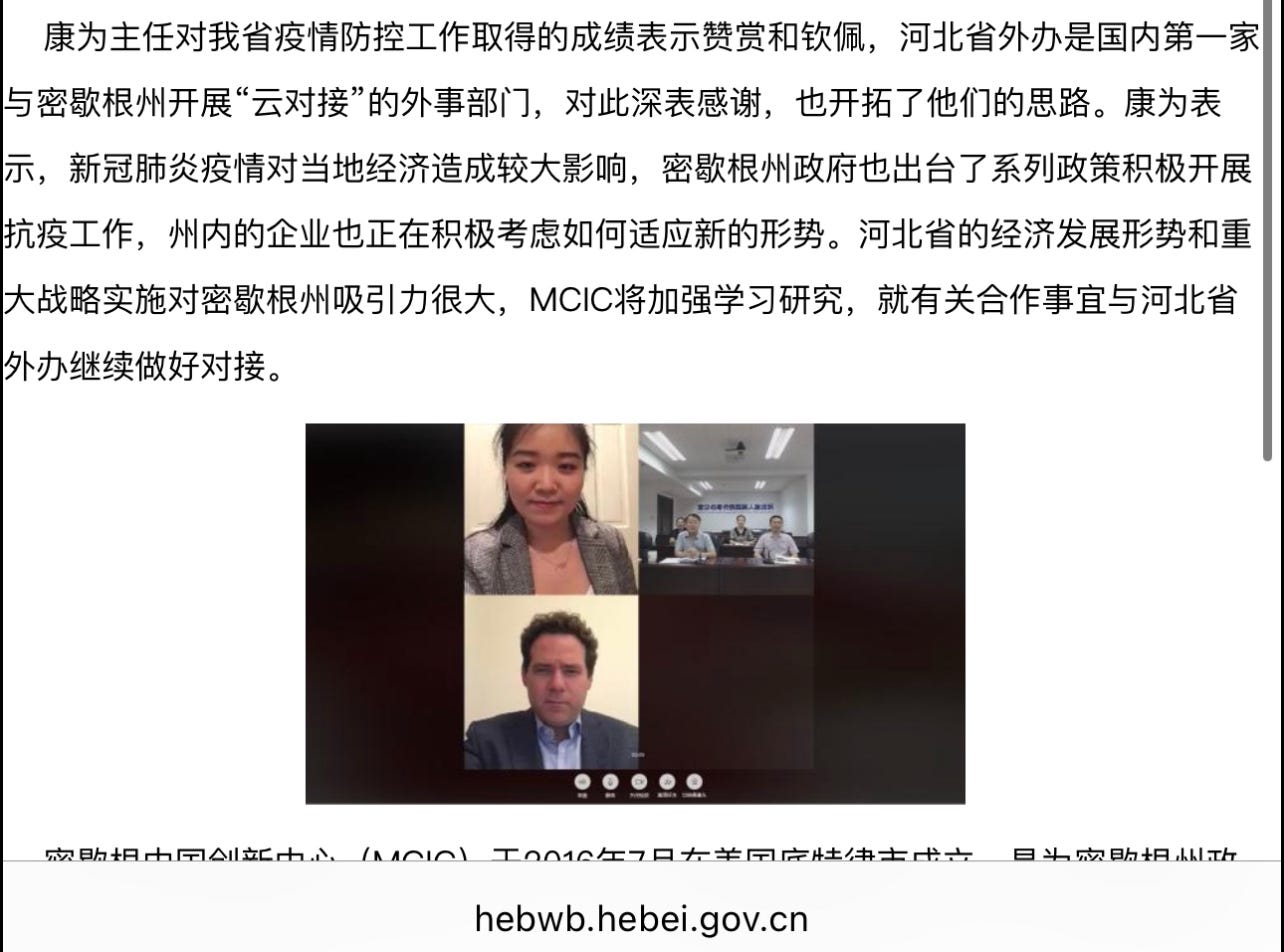
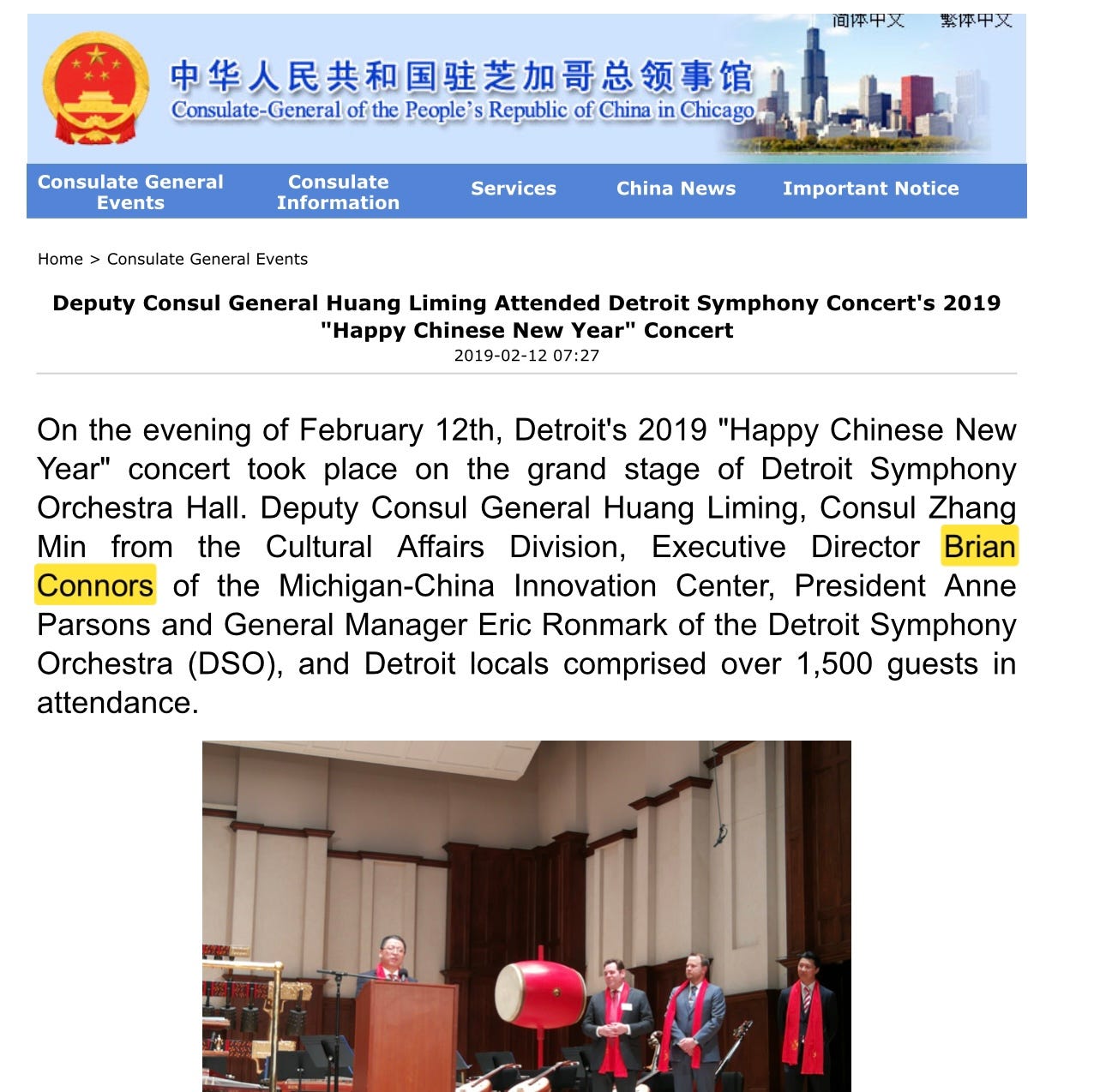
The only other listed representative for the MCIC is someone by the name of Yahang Zhang, 张亞航, who is coincidentally a graduate from MSU. The MEDC funded the creation of MCIC with $5 million via their Michigan Strategic Fund (MSF).
The current CEO of the MEDC, Quentin Messer Jr., is on Governor Whitmer’s cabinet, sits on the board of the Michigan Strategic Fund (MSF), (which dolls out millions of dollars in grants), and was appointed by Whitmer herself.
While the MEDC only publicly claims to give out 500K annually, (of which Konnech received over half), they are able to distribute millions of capital via the MSF. The MEDC has been entwined in the scrutiny of lawmakers in the past for grants suspected of conflict of interest.
These “quasi-government” organizations are all created by and ran by the same people which distribute funds that all pass through each other before arriving at their final destination. For instance, one example of $299,999,900 worth of funds moved from the MSF, coordinated by the MEDC, ultimately went toward an organization, the American Center for Mobility, which has Michigan State University and Michigan University representatives on its board as well as the CEO of the MEDC who, again, is on the board of the MSF. So they gave money to themselves.
While this may seem to have a reasonable explanation, given that American Center for Mobility, and even the MEDC itself in some ways, have to do with infrastructure; public private partnerships (PPP), like the MEDC are historically controversial due to a frequent lack of transparency. The financial details of most P3s are shrouded under commercial confidentiality provisions and are not readily available to researchers and the public. A survey of city managers in 2007 revealed that PPPs are often inadequately monitored by their communities. Additionally, perhaps the biggest reason PPP’s are so highly controversial is that the public return on investment is, more often than not, lower than privately funded ventures — yet residents often still have to pay taxes on these projects regardless. Did Michigan residents have to pay taxes to fund Konnech and the MCIC? While the MEDC allows for FOIA requests, the discrepancies are typically several steps removed from the MEDC and exist within the underlying relationships with the foundations they engage with — as seen in a case with donations from Northern Michigan University Foundation probed by lawmakers.
Another organization of interest, the Michigan Business Network (MBN), was founded by Chris Holman, the former liaison for the MEDC who was appointed in 2006 by former Governor Granholm. Holman is listed on allpeople.com as a Director at Konnech.
However, this has not yet been verified through any other sources and he is not on the list of current employers, so it appears this may have been in the past.
In a Lansing State Journal article, Holman was quoted saying “the challenge is attracting Chinese visitors to Lansing over bigger cities such as New York and Los Angeles.” He said that “promoting Michigan State University will be key to the effort.” According to Holman, “Capital Region International Airport has announced plans for what will likely be weekly flights to Beijing.”
The Michigan Business Network
The MBN also regularly hosts Chinese dignitaries from places like Beijing and Xiamen. (Konnech has a former employee living in Xiamen and many Eugene Yu’s employees and associates studied in Xiamen.) MBN has created an entire China Channel devoted to developing relations with China. Most of these initiatives’ stated purpose is to foster business relationships and encourage tourism from China, which on its face may seem innocuous. However, even the Executive Director of the Michigan-China Innovation Center, Brian Connors, has said “Michigan’s business and political leaders should understand “there is great connectivity” in China “between enterprises and the government, and between the government and the Communist Party.” In light of what we now know about organizations like the CSSA and the espionage engaged in by the elite military universities that MSU partners with, is it unreasonable to wonder whether these business and tourism relationships may come with strings attached?
One of the MBN events that hosted a Chinese delegation from Beijing was at the MSU campus. The event featured the Consul General for the People’s Republic of China and the meeting later resolved at MEDC headquarters.
The managing director of MBN’s China Channel, Ren Zhang, who coincidentally lives in Okemos, (the same town as Konnech’s original Michigan office), is also a partner of the Lansing Regional Chamber “who is devoted to the development of business relationships between China and Michigan.”
Lansing Regional Chamber can be seen hosting events with Eugene Yu, sponsored by MSU, about doing business in China.
The other representative for MBN’s ‘China Channel’ is named Xing Tong and he earned a degree in Telecommunications.
In an MBN interview with Konnech employee Eric Staats, (also an MSU graduate), he says that “Konnech was founded in 1999 where we were installing phone systems for different government entities around the state — and then just under a decade after that we first got into election software with our first clients in the city of Detroit and ever since then, we have been a fully election software company.”
This is rather interesting considering that the telecom industry has been one way that the Chinese Communist Party infiltrates the United States. For instance, Chinese telecom giants, Huawei and ZTE, were banned in the United States due to being a national security threat. In a statement by the FCC Chairman Ajit Pai, he states:
“With today’s Orders, and based on the overwhelming weight of evidence, the Bureau has designated Huawei and ZTE as national security risks to America’s communications networks… Both companies have close ties to the Chinese Communist Party and China’s military apparatus, and both companies are broadly subject to Chinese law obligating them to cooperate with the country’s intelligence services.“Interestingly, Eugene Yu still runs a telecom company called “KONNECH TELEPHONY INTEGRATORS” that services countries around the world, including China, which can be found on Chinese business directories.
If you’ve read my first article, you may recall that the tech used to power Konnech’s product, PollChief, is owned by companies that work with Chinese telecom giant Huawei and even partners with China’s tech giant Alibaba, (which was praised for establishing a Communist Party Committee in Beijing and for having over 30% of the company made up of Communist Party members — Alibaba was also founded by Communist Party member, Jack Ma). Disturbingly, that same tech is used by tech giant, Verizon, and many other companies across the United States.
After reading about these peculiarities of significant Chinese involvement with the state of Michigan and Michigan universities partnering with Chinese schools from the Seven Sons of National Defense, some of which are involved in developing the PLA’s nuclear arsenal (and other schools with known ties to the Chinese military), you may be wondering: why Michigan?
In 1972, Michigan was the first place that formal communications with the Chinese government began, and it was facilitated by universities in Michigan, mainly from University of Michigan professors and graduates — some of whom eventually went to China to meet with Chairman Mao himself. It began with a delegation from China’s table tennis team who flew into Detroit and visited AnnArbor after an invitation from Michigan University, in what later came to be known as “Ping-Pong Diplomacy.”
According to an article from the University of Michigan Library, “the visit was arranged by Alexander Eckstein, a founding member of the National Committee on U.S.-China Relations and a Professor of Economics at U-M, whose work on the history of the Chinese economy was well known.” The article explains that “in 1973, the National Committee on U.S.-China Relations asked Professor Don Munro to co-lead the first group of national educators (from the National Education Association) on a trip to the newly opened People’s Republic of China. This was one of two semi-official delegations agreed upon by Zhou Enlai and Henry Kissinger in the 1972 Shanghai talks between the PRC and U.S. governments.”
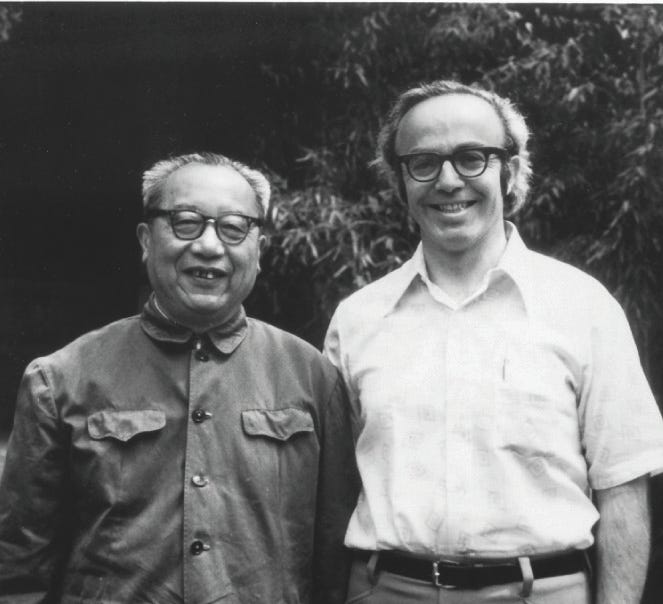
Additionally, “Professor Feuerwerker visited China in 1973 from May 15 to June 15, as a member of a delegation sponsored by the Committee on Scholarly Communication with PRC (CSCPRC). During this visit, Professor Feuerwerker and his wife, Yi-Tsi Mei Feuerwerker, also a CCS faculty member, both met with Zhou Enlai. Richard Solomon, a CCS faculty member specializing in Chinese politics, served as Senior Staff Officer for China on the National Security Council under President Nixon. In December 1975, Professor Solomon also visited China, then serving as President Gerald Ford’s China Senior. During this trip, President Ford (a 1935 graduate of U-M), accompanied by Professor Solomon, met with Chairman Mao Zedong and Vice Premier Deng Xiaoping, furthering U.S. diplomatic contact with the PRC.”
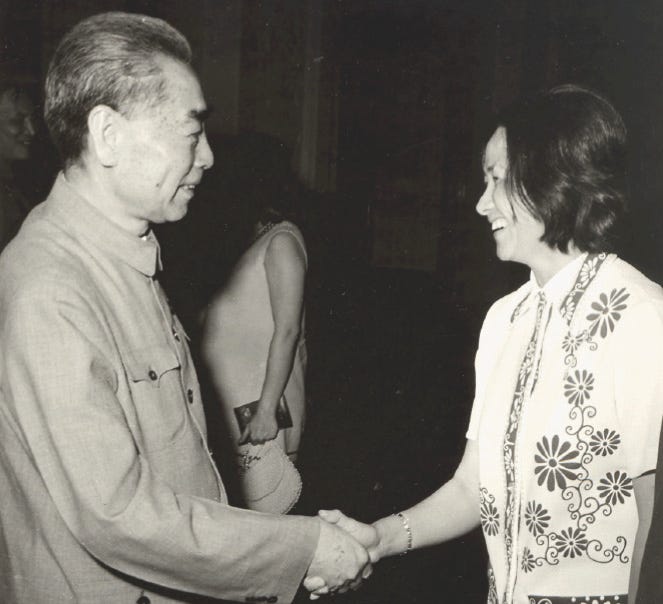
Astonishingly, even before this, students from University of Michigan, Wang Chengshu and Zhu Guangya helped Chairman Mao develop China’s nuclear warhead program in the 1960’s.
Today, University of Michigan also works with Harbin Institute of Technology (HIT) and Nanjing University of Science and Technology (NJUST) — two of the Seven Sons of National Defense — and other schools with known ties to the Chinese military, like Peking University and the PLA’s National University of Defense Technology (NUDT).
According to the Hoover Institution report, University of Michigan and HIT researchers co-authored an article on naval engineering, which “included an individual who worked at naval defense conglomerate China Shipbuilding Industry Corporation. At HIT, that researcher has overseen defense projects on topics relating to ship vibration analysis, transmission, or prediction techniques—two of which may have been classified projects given the use of “XXX” in the research grant codes.”
“Publications with authors from NJUST’s School of Energy and Power Engineering,” (another one of the Seven Sons of National Defense), “appeared in seven articles in the collected corpus along with US-based coauthors from… the University of Michigan… Six of the seven publications had the same PRC coauthor,” the report added.
The report states that when searching a database from ‘China’s National Knowledge Infrastructure,’ that an article “listed coauthors affiliated with the University of Illinois at Chicago, the University of Michigan, and the PRC’s [National University of Defense Technology] NUDT, in addition to Beihang University. One of the coauthors claims a dual affiliation with Beihang and the University of Illinois, and another coauthor claims a dual affiliation with [National University of Defense Technology] NUDT and the University of Michigan. NUDT is a university directly managed by the PLA. These dual affiliations invite scrutiny of the US institutions’ involvement.”
University of Michigan also established a “Tsinghua-Michigan Society of Fellows” with Tsinhua University — a university which trains students for China’s nuclear weapons program, military and defence industry. Tsinghua University has been involved with cyber attacks and the ASPI ranks the school as very high risk.
These are startling revelations that go far and beyond what we now know about Eugene Yu. It would appear that Konnech is just the ‘tip of the iceberg,’ so to speak. However, the Konnech story is a portion of this grand scheme where we appear to have direct evidence that proves illegal activity.
A veteran friend of mine, who goes by the moniker AwakenedOutlaw, told me about a term known as a “beach head.” Wikipedia describes it as “a temporary line created when a military unit reaches a landing beach by sea and begins to defend the area as other reinforcements arrive. Once a large enough unit is assembled, the invading force can begin advancing inland.”
Has Michigan become the “beach head” for the Chinese Communist Party? Michigan has a rich history in the automotive and defense industry. Wouldn’t that be the perfect place for the Chinese Communist Party to establish a “beach head”?




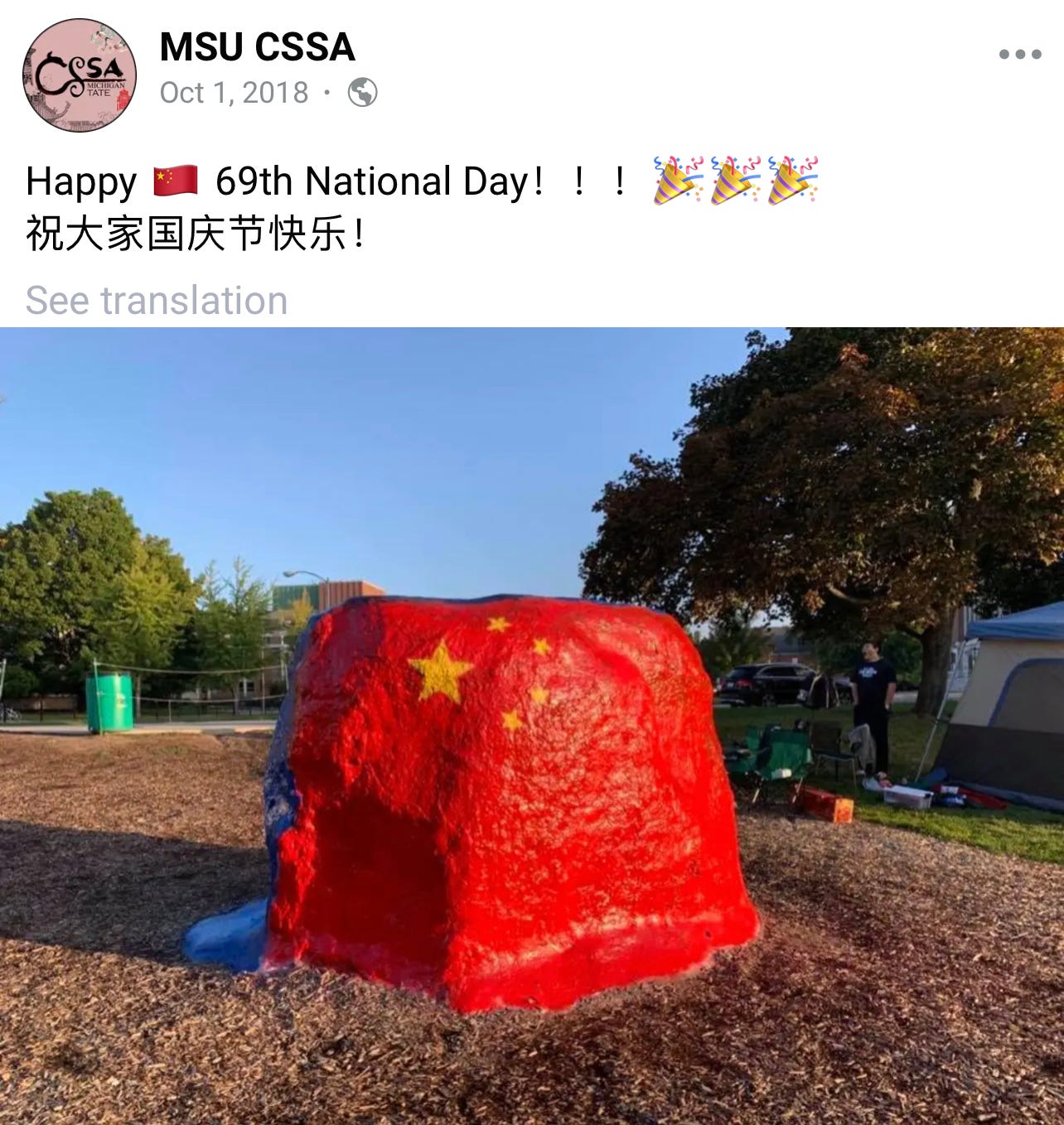

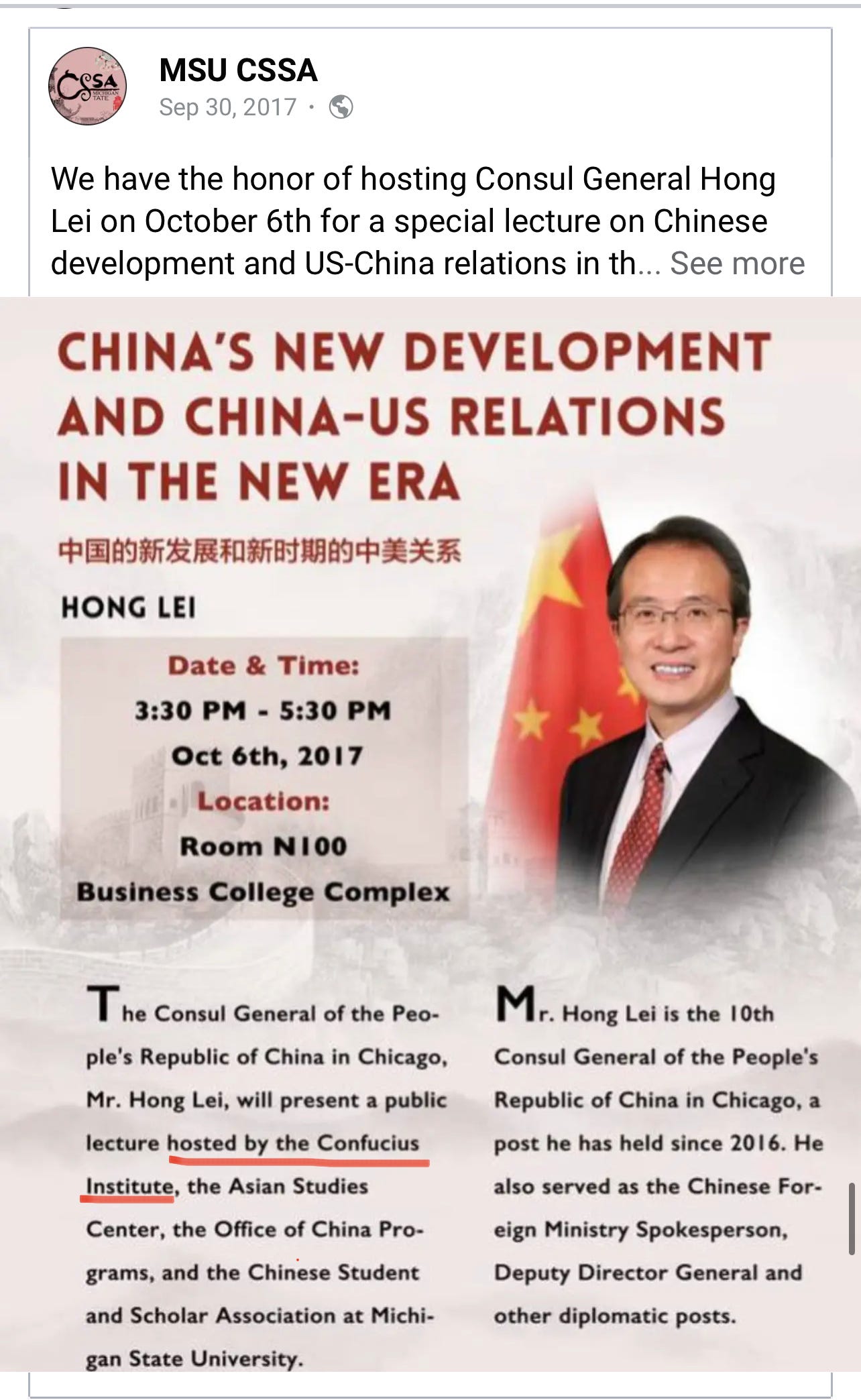
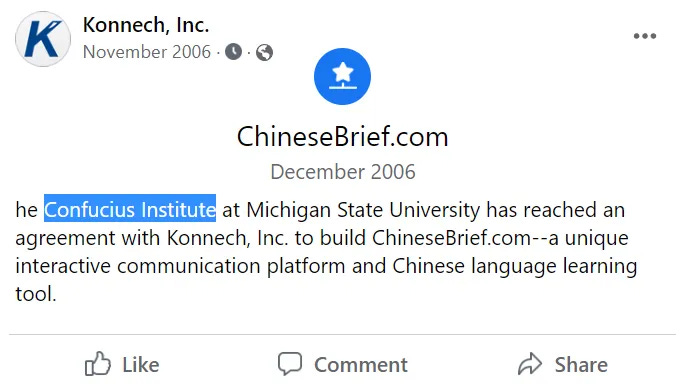

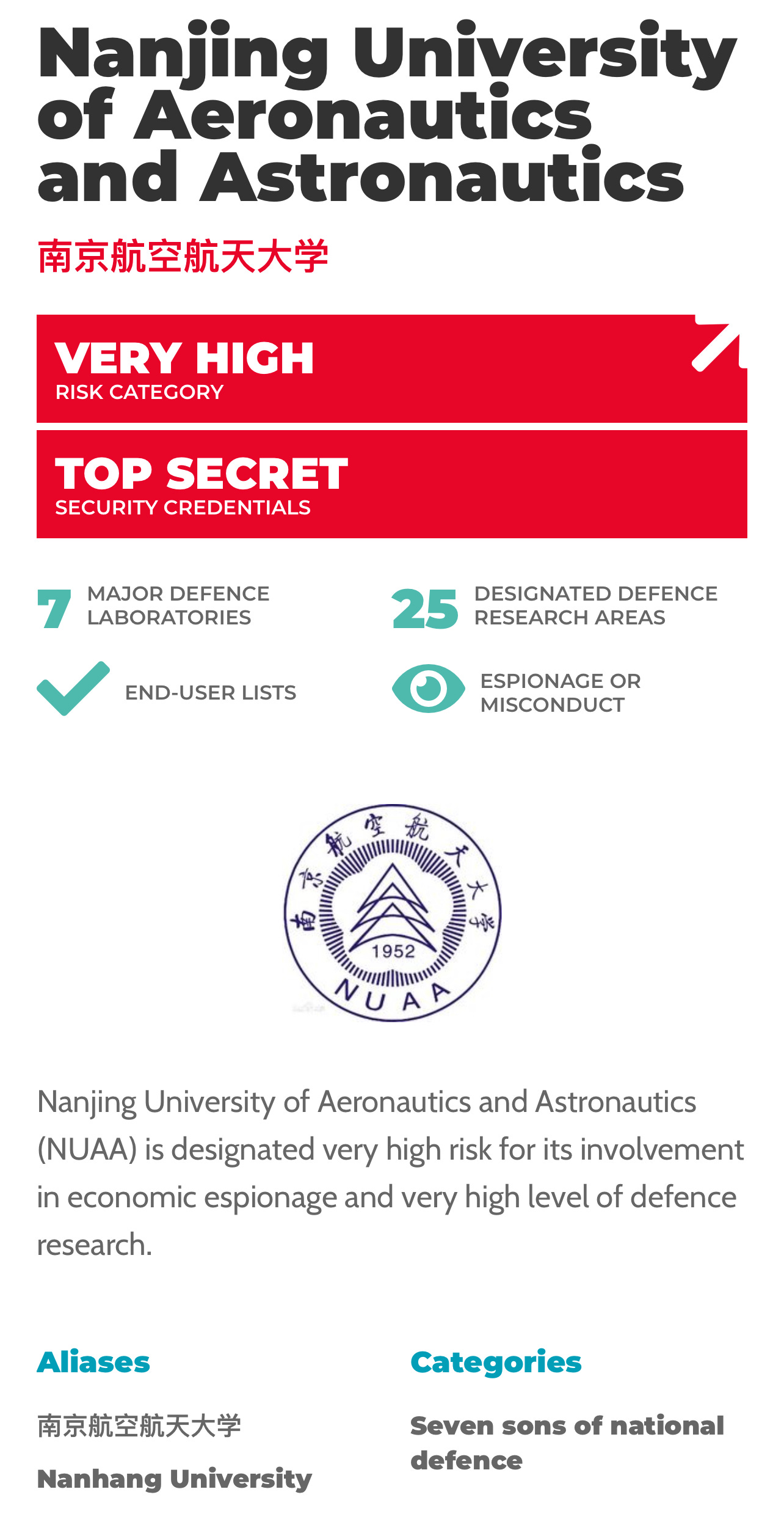
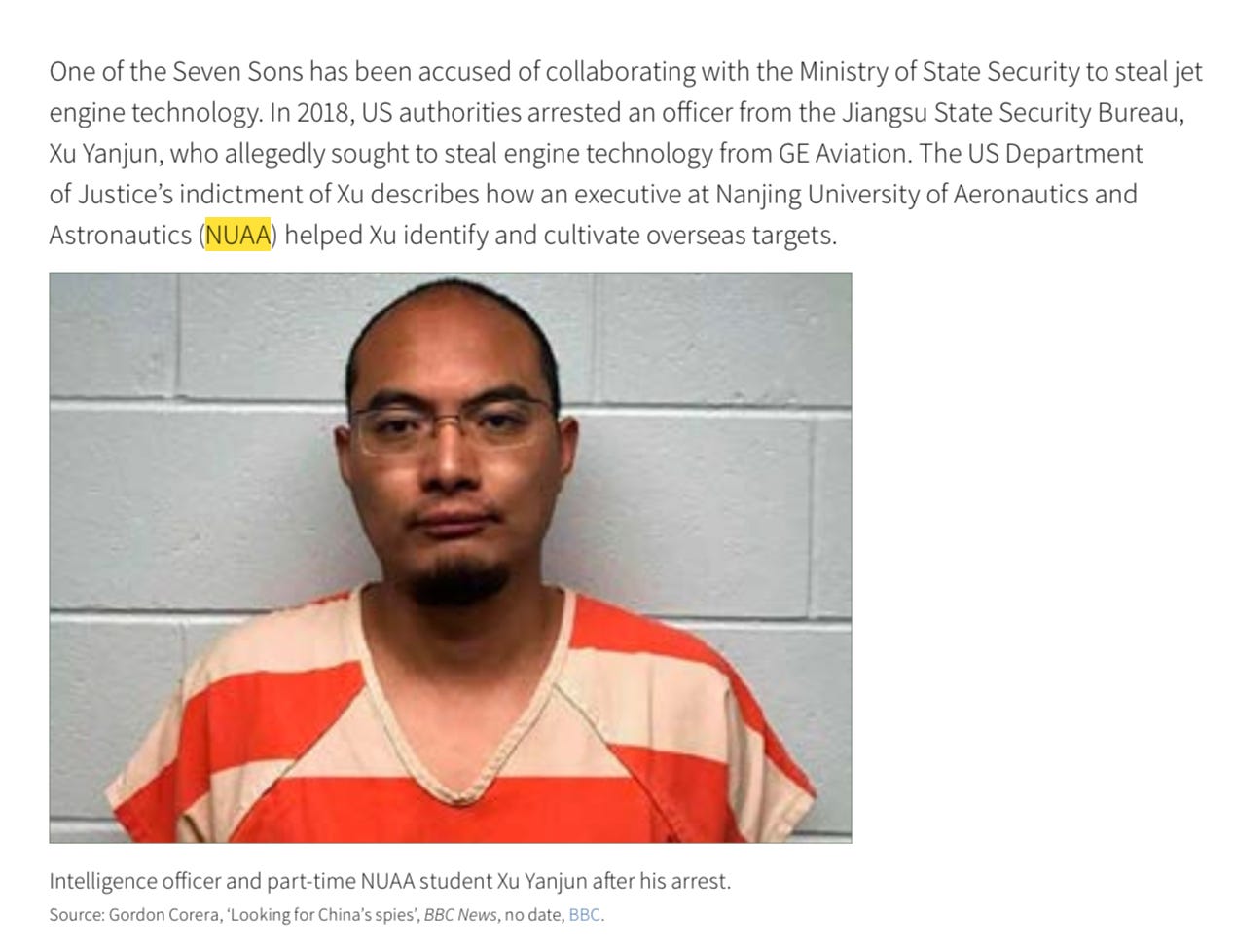
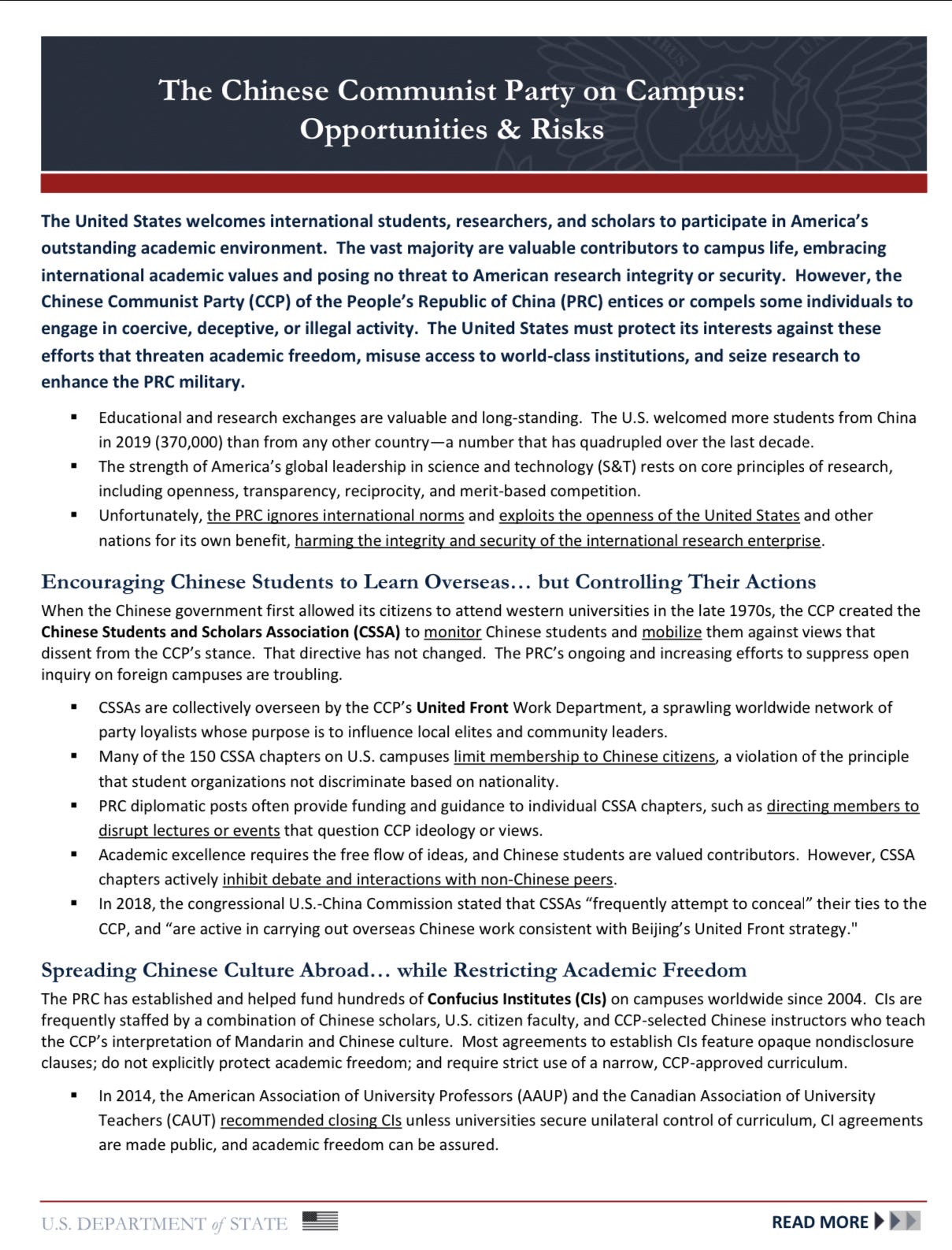
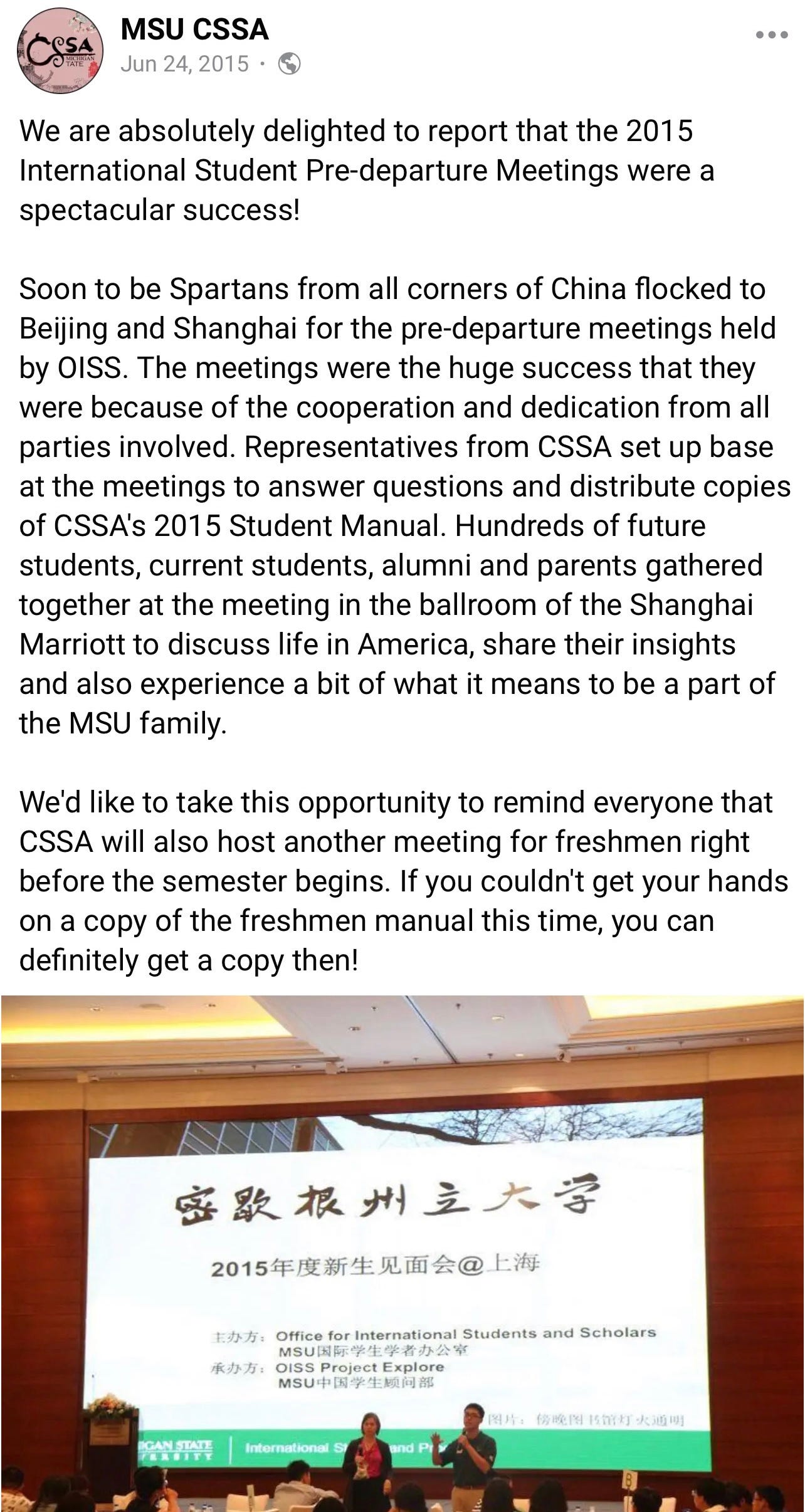
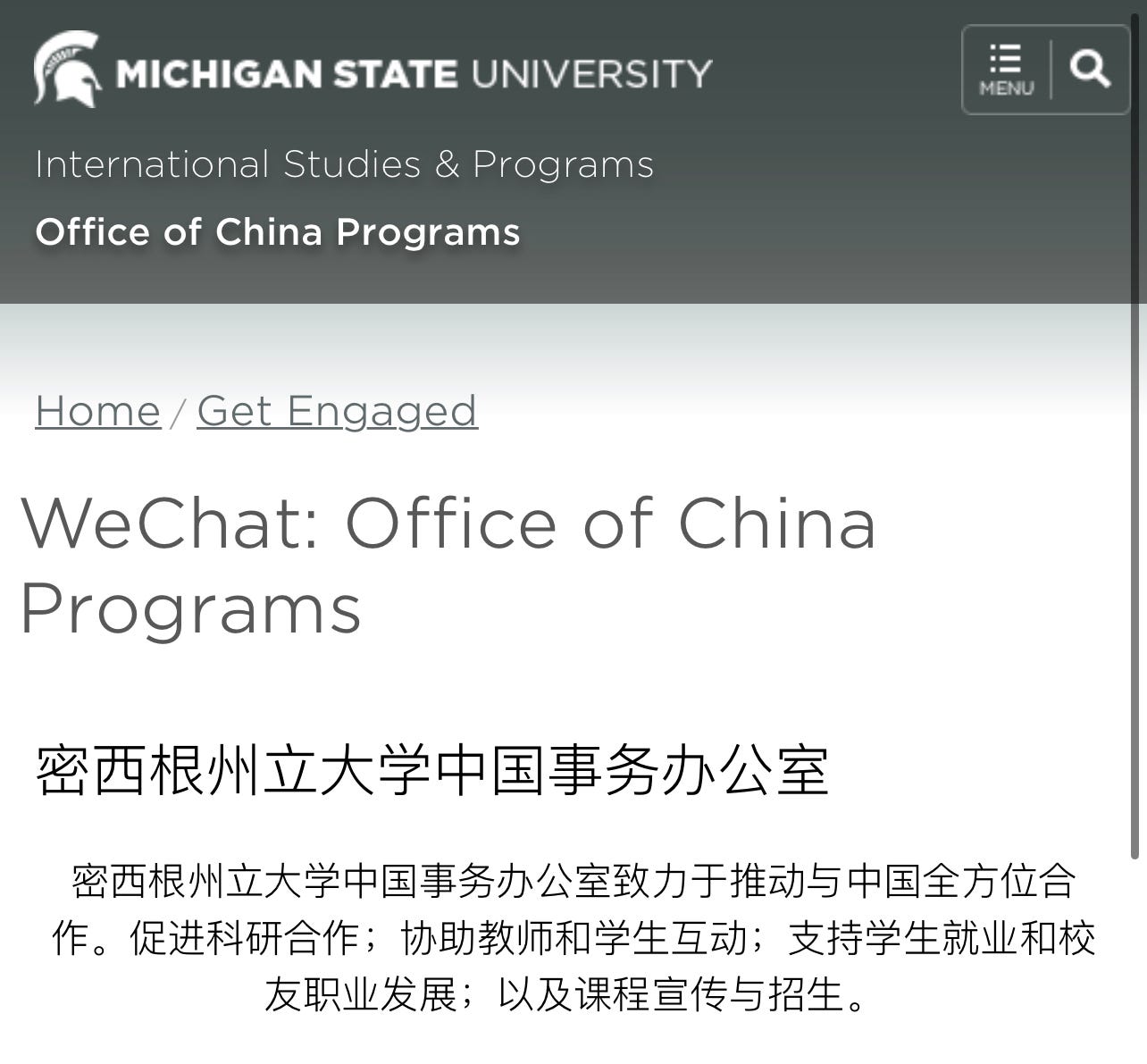
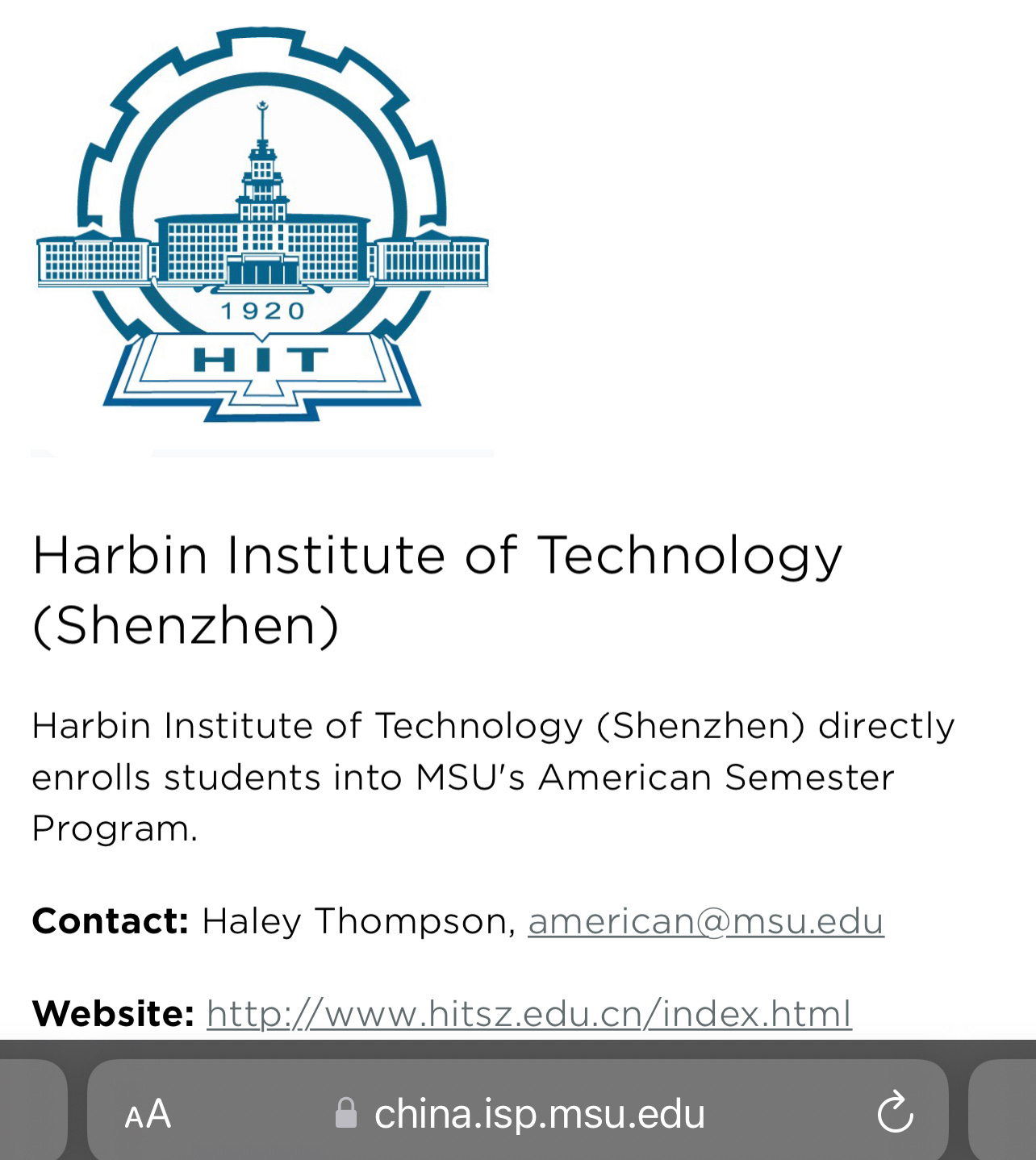
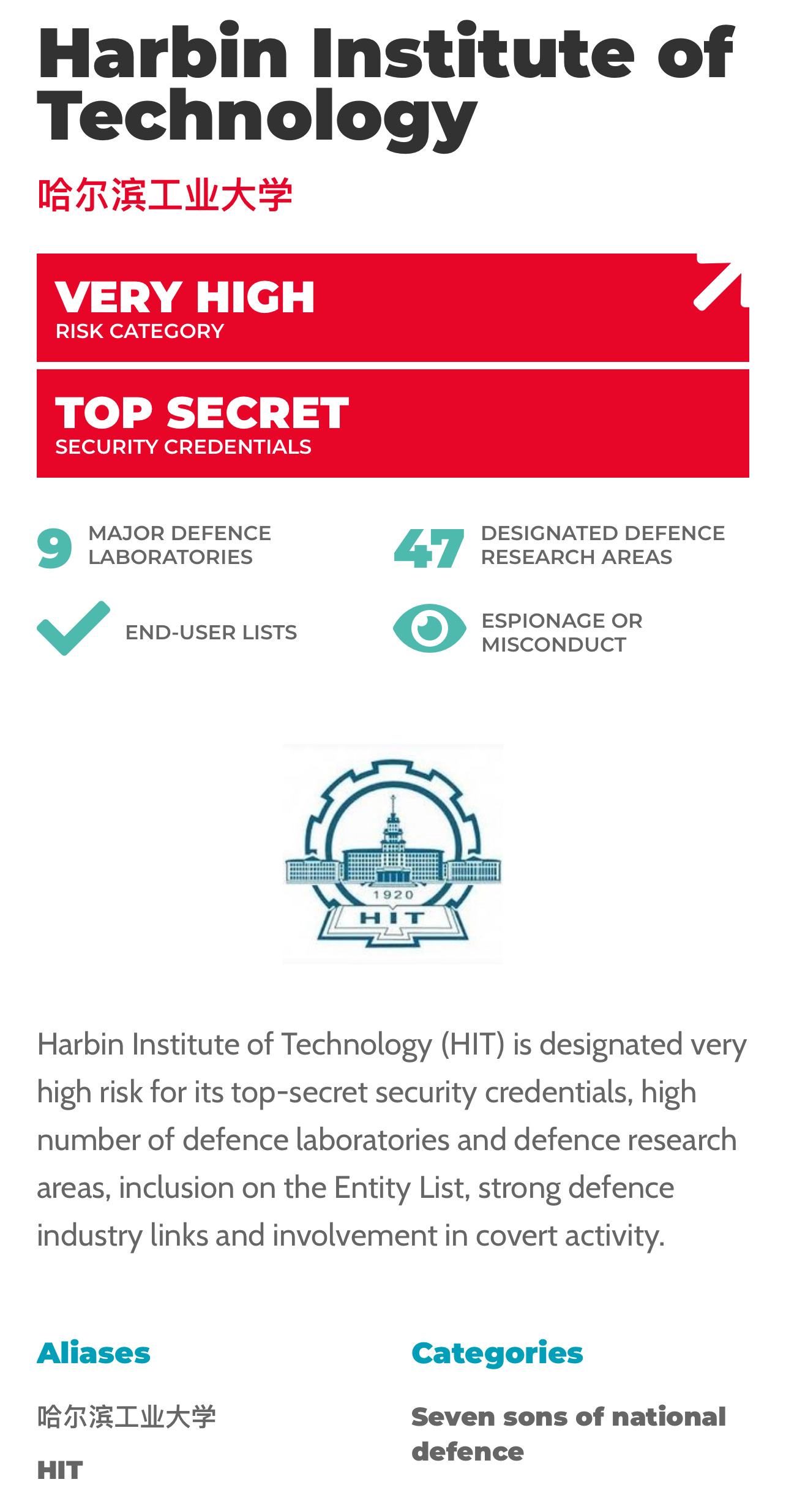
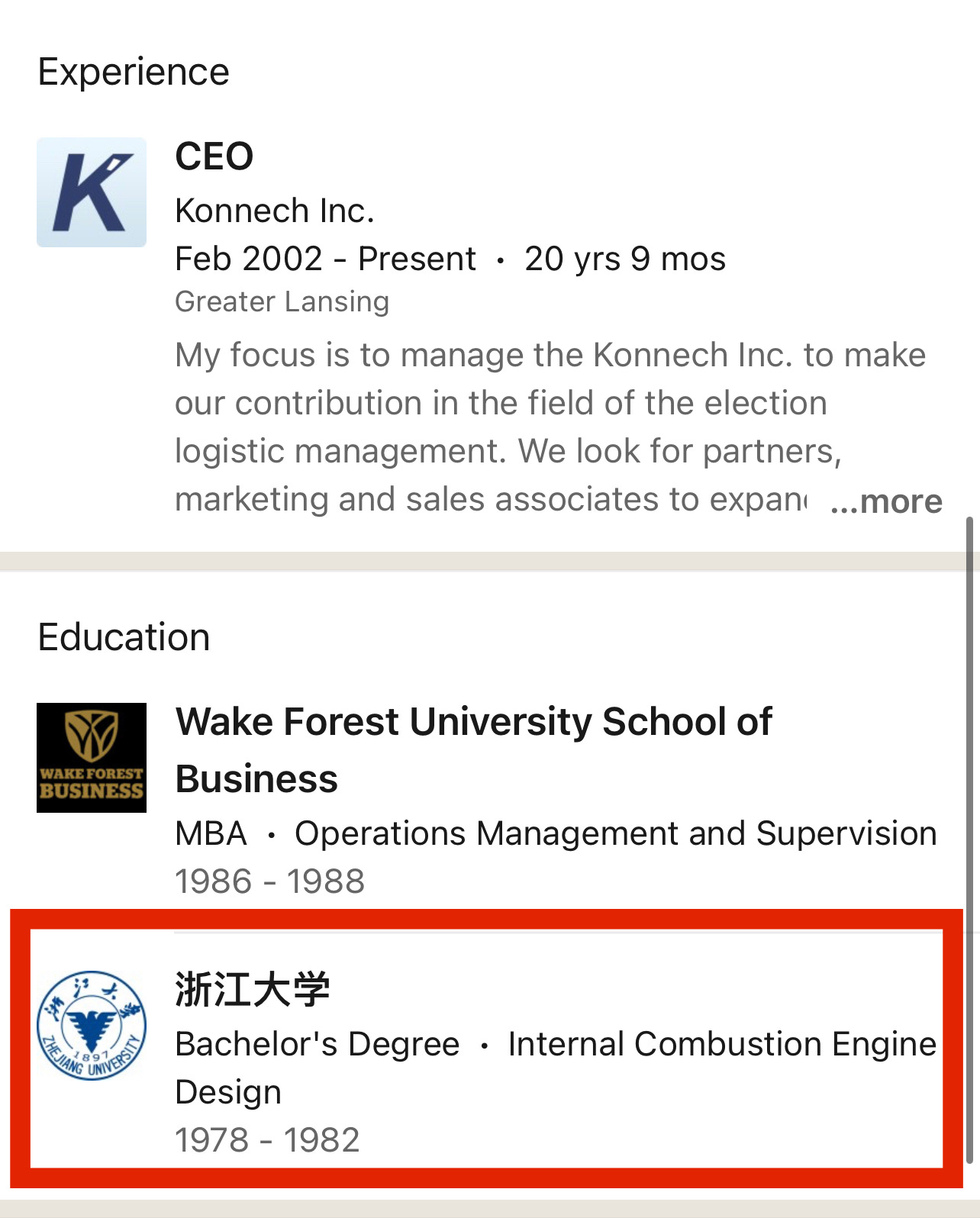
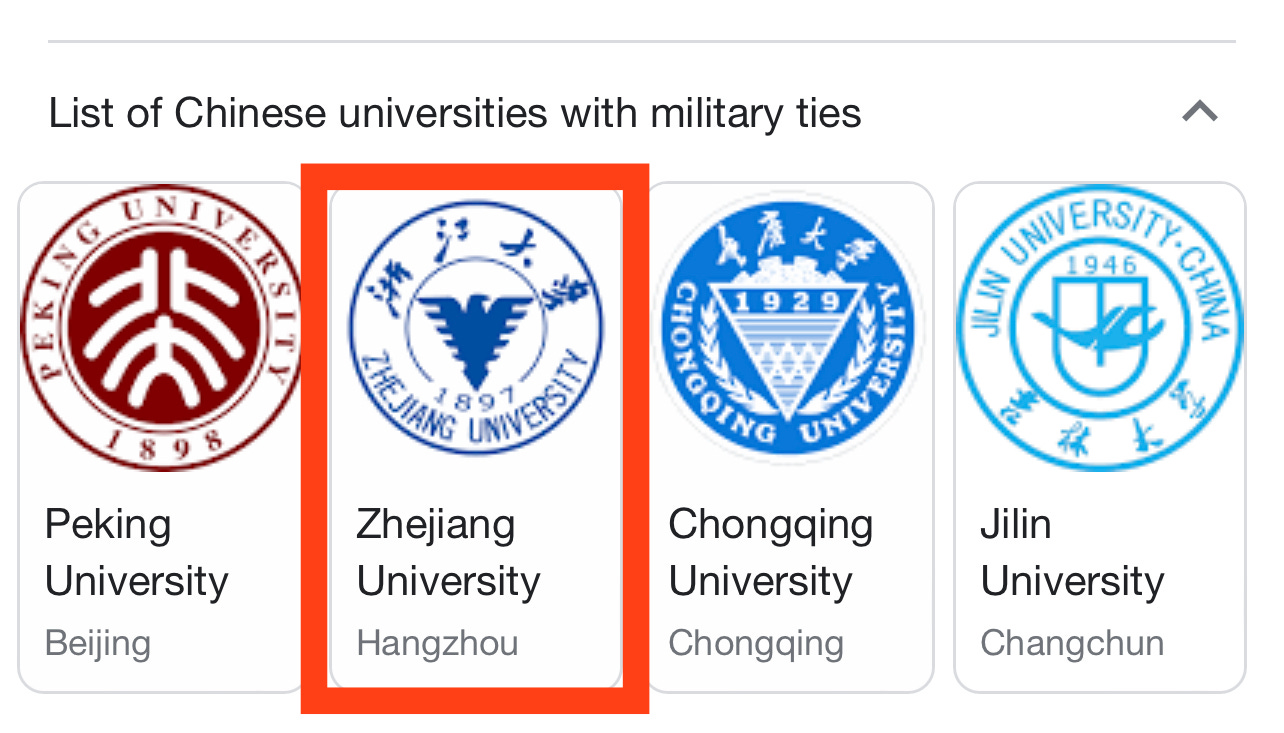
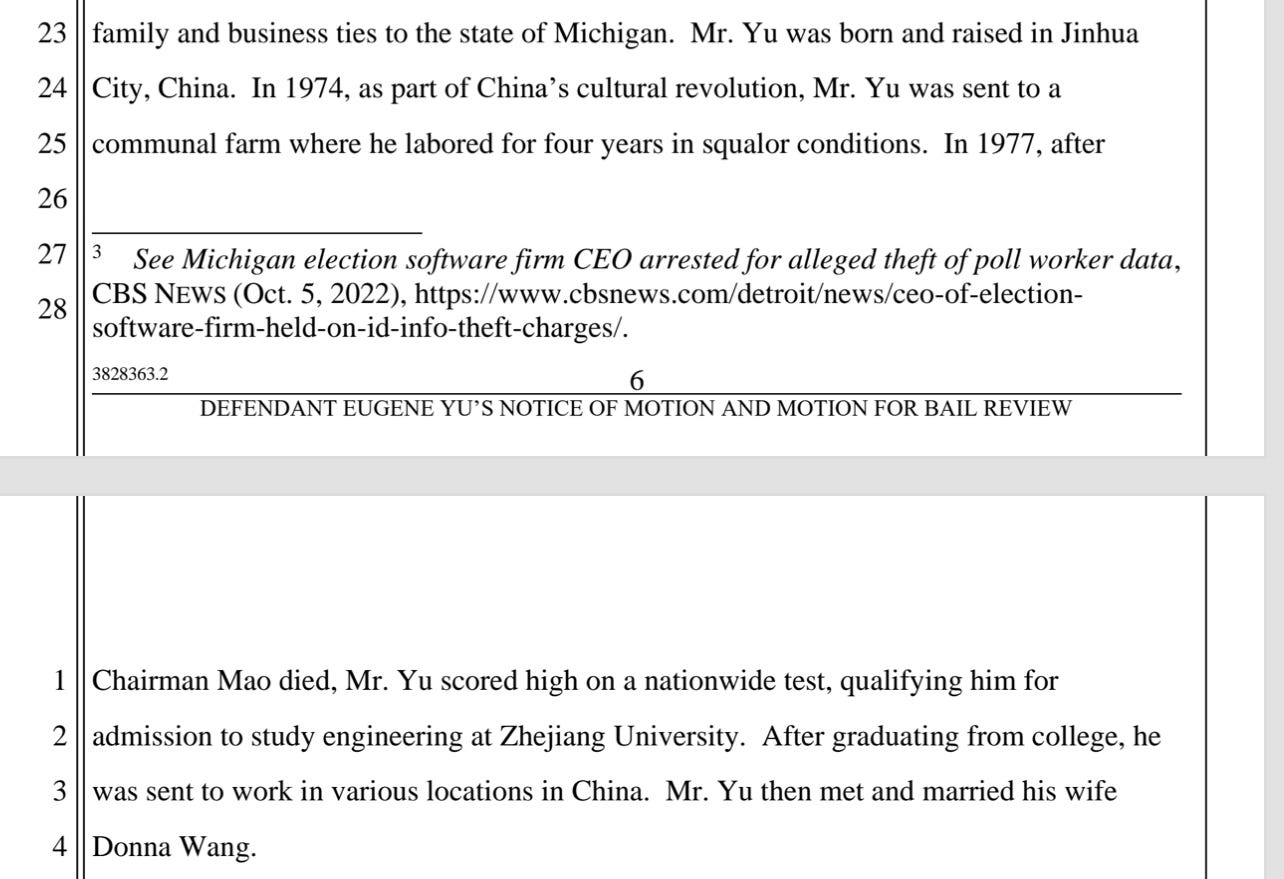

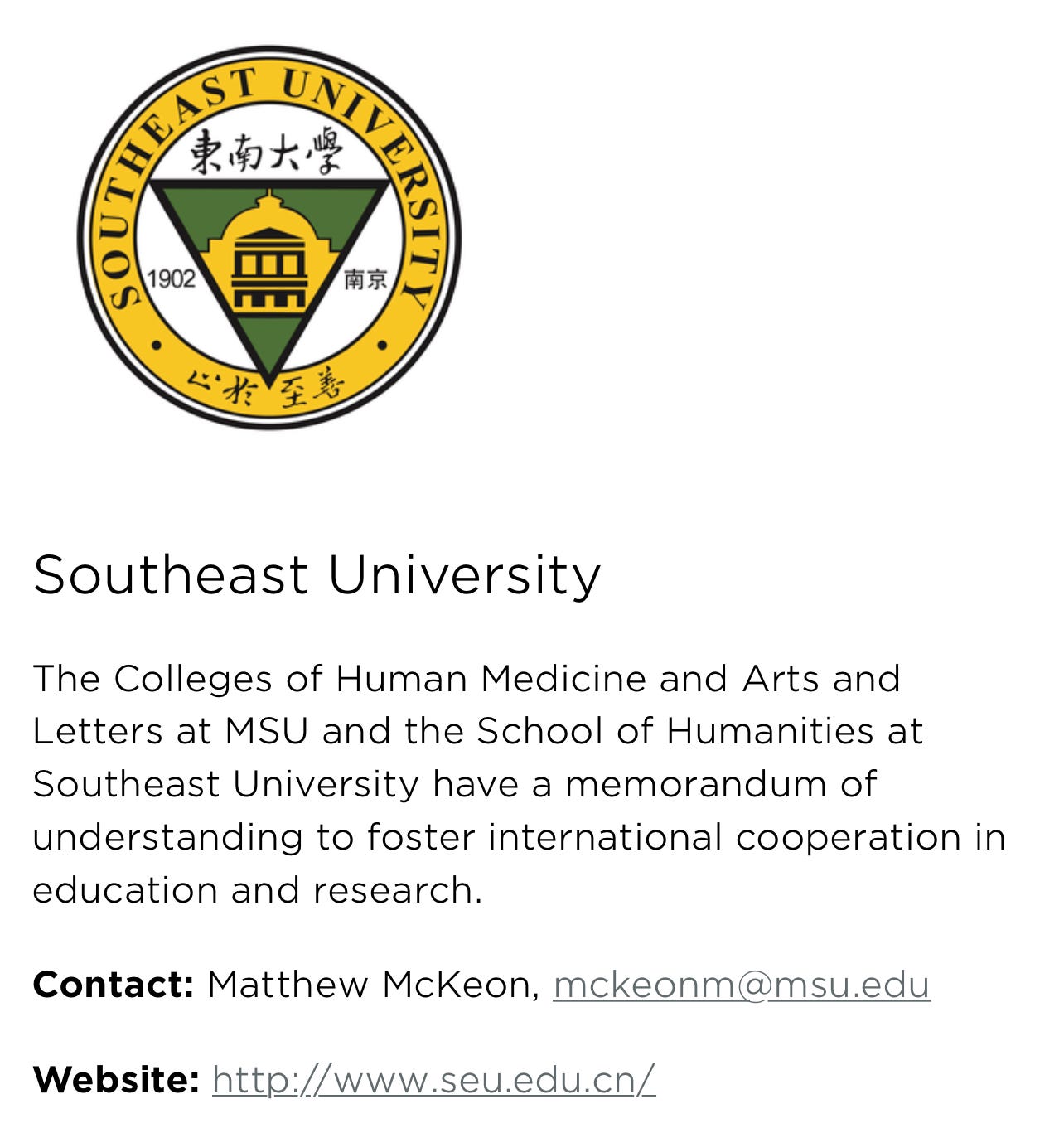
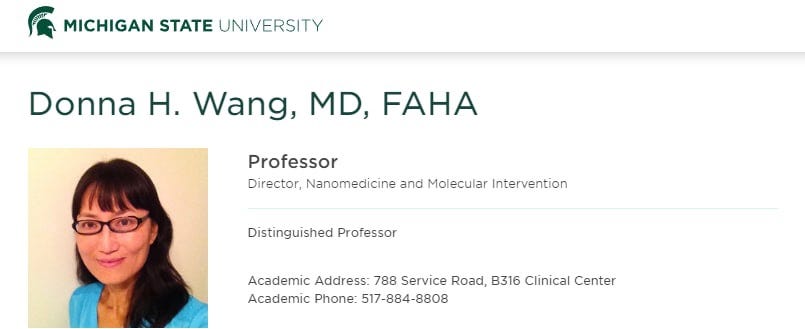
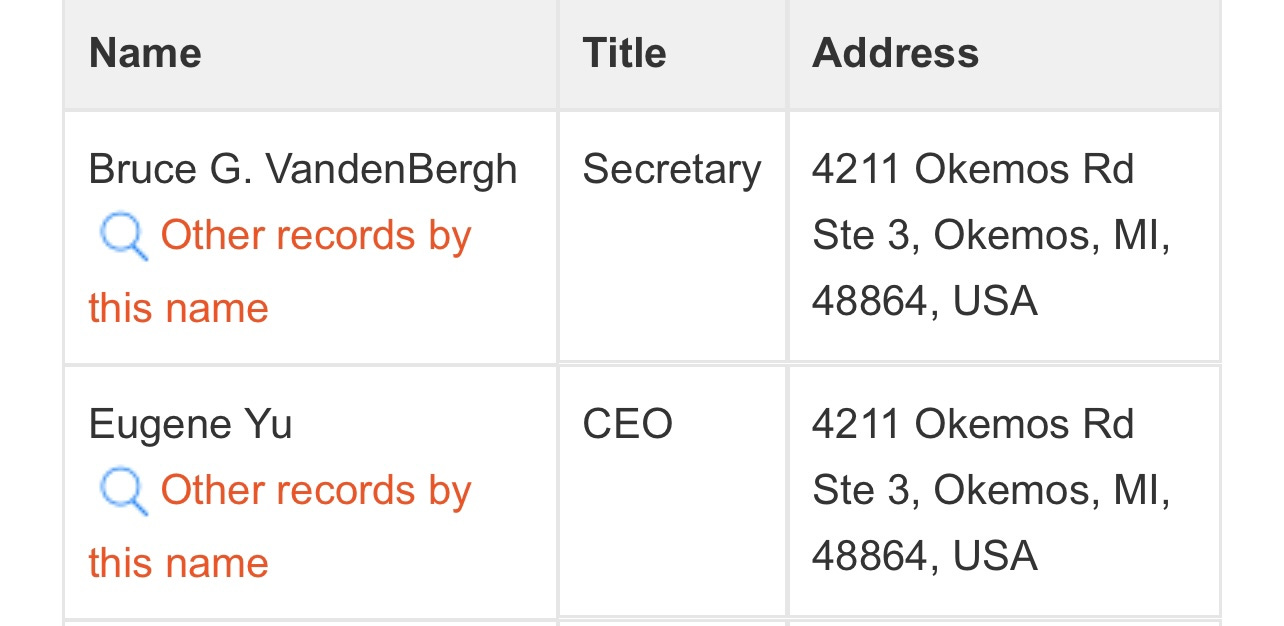



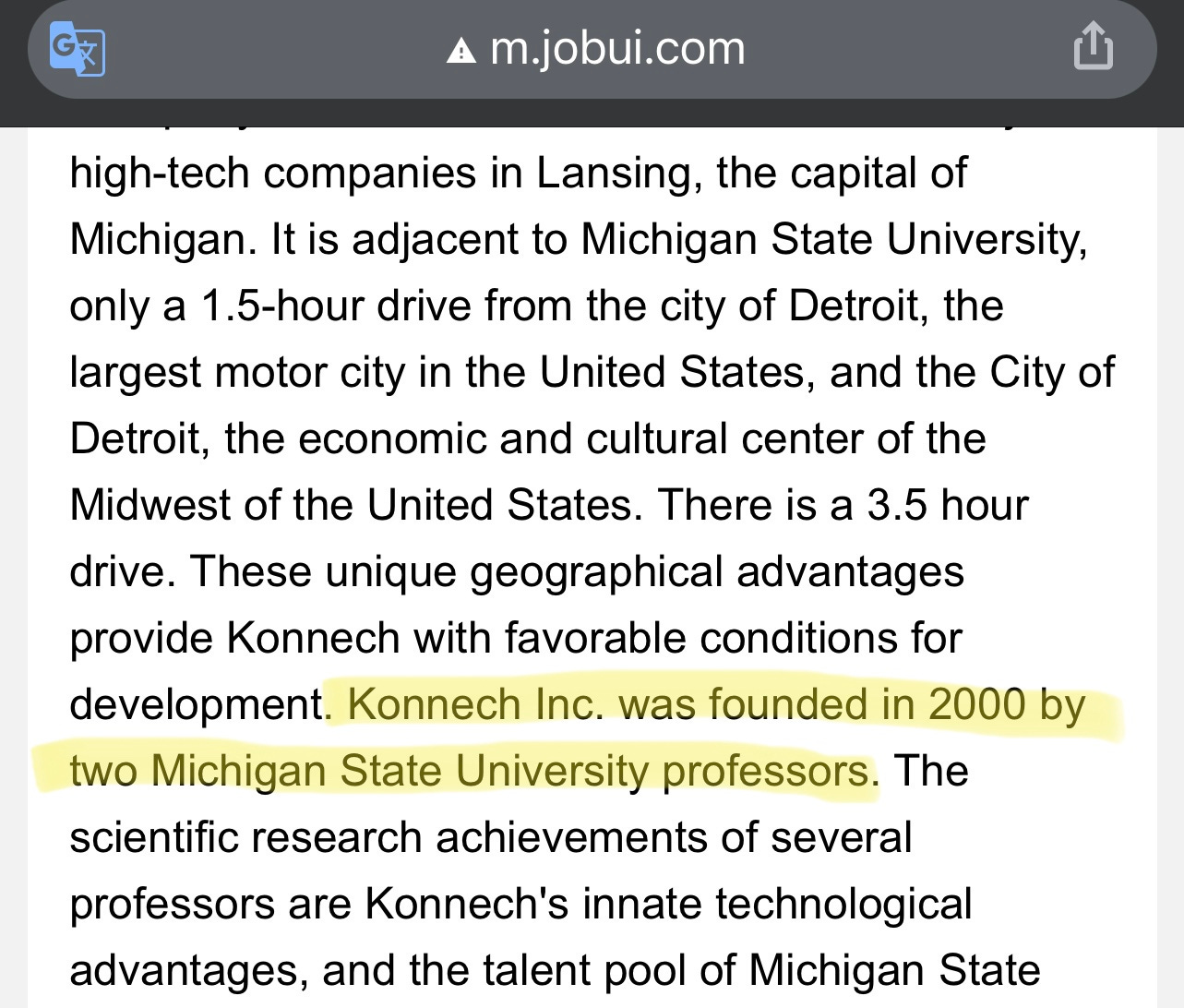

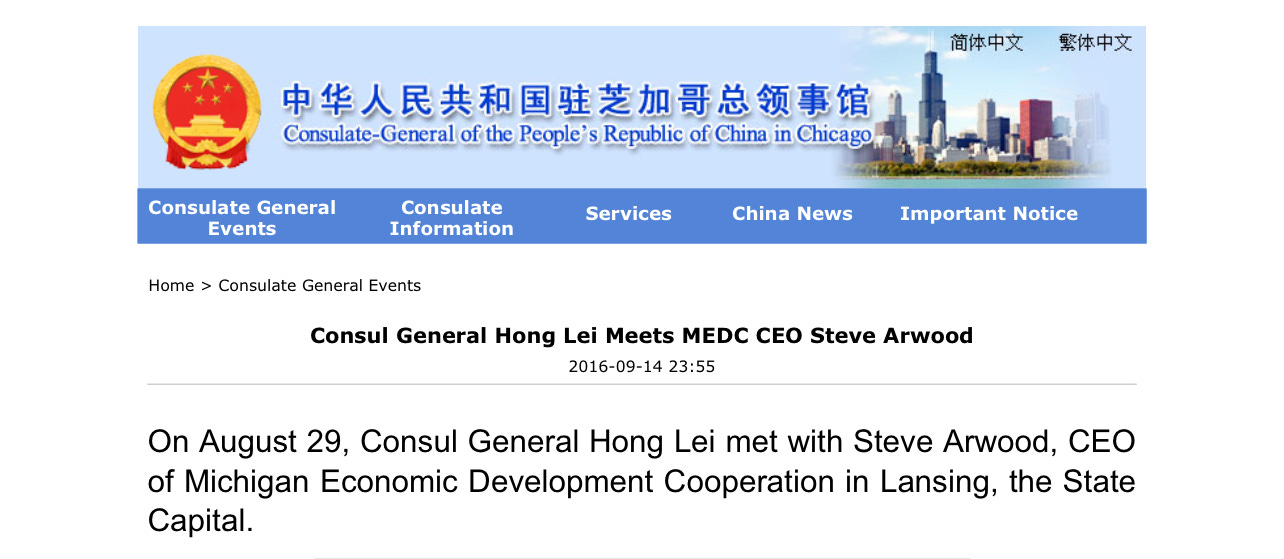
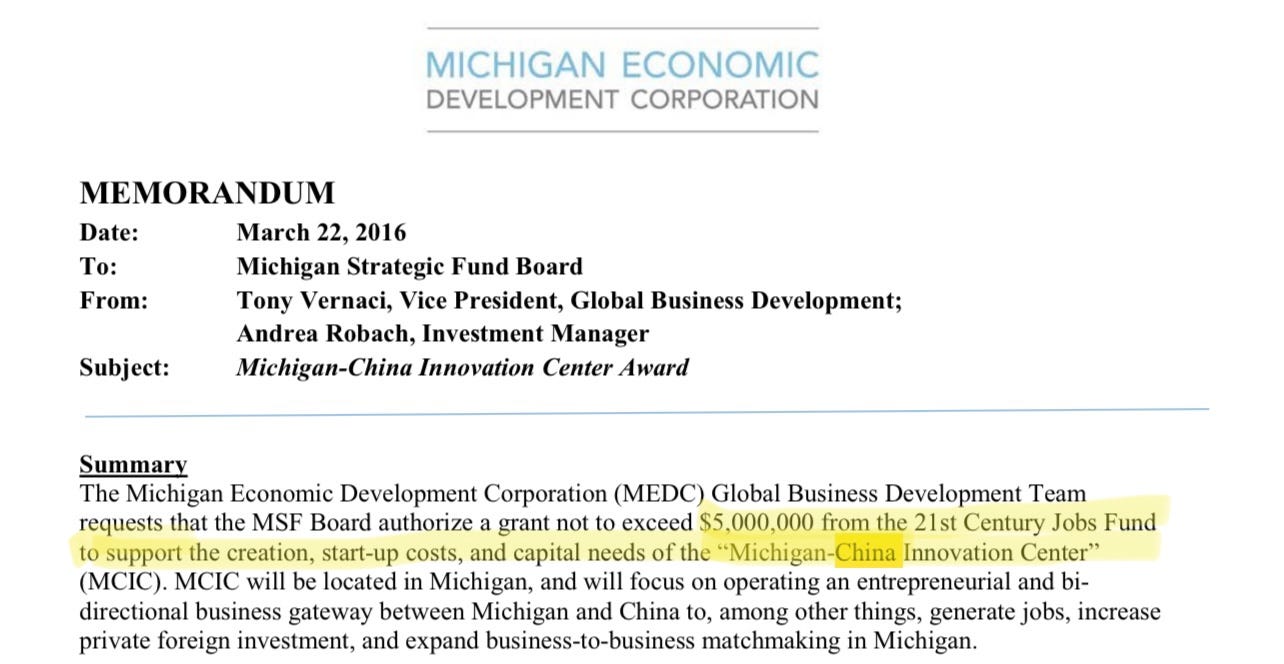
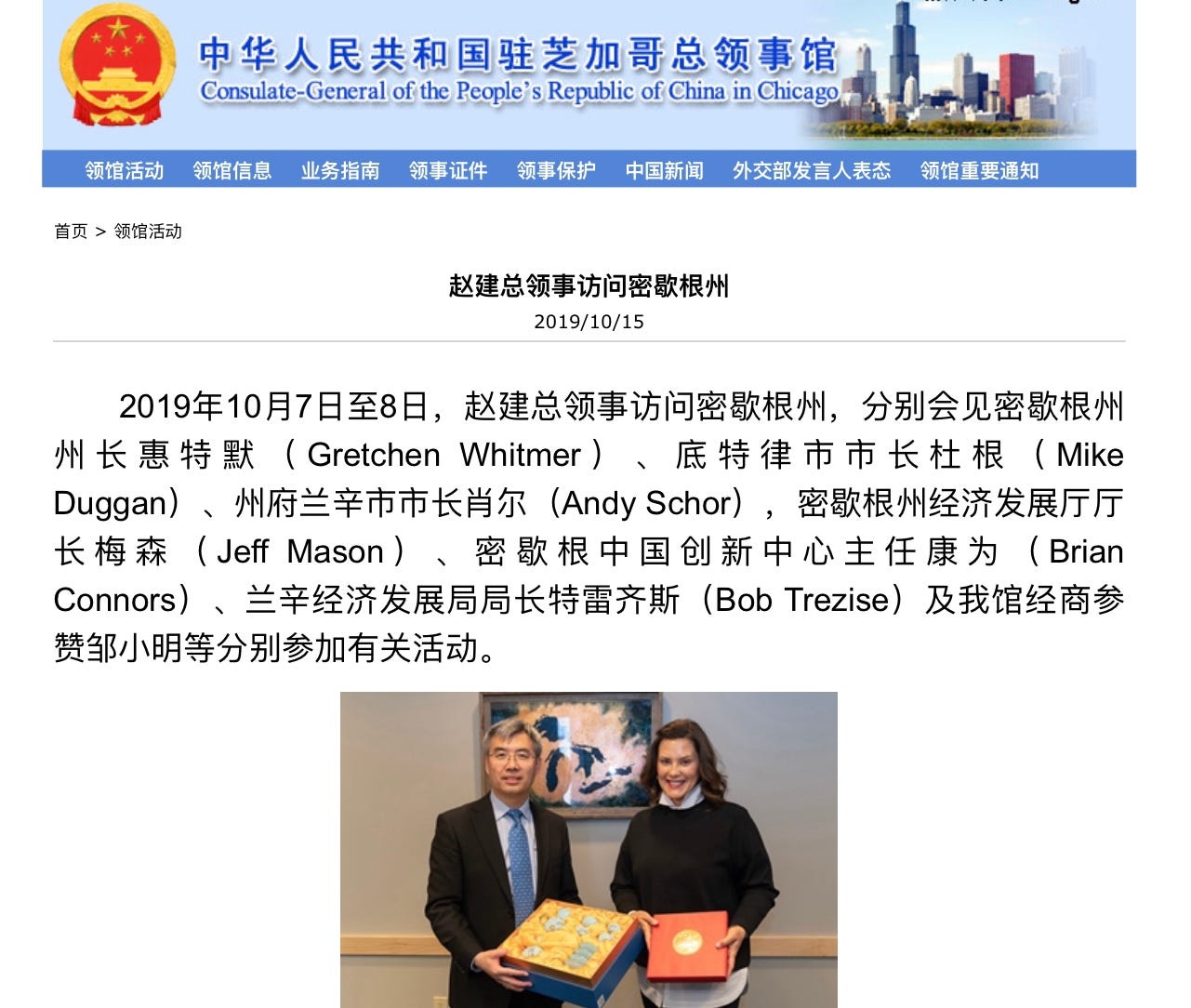

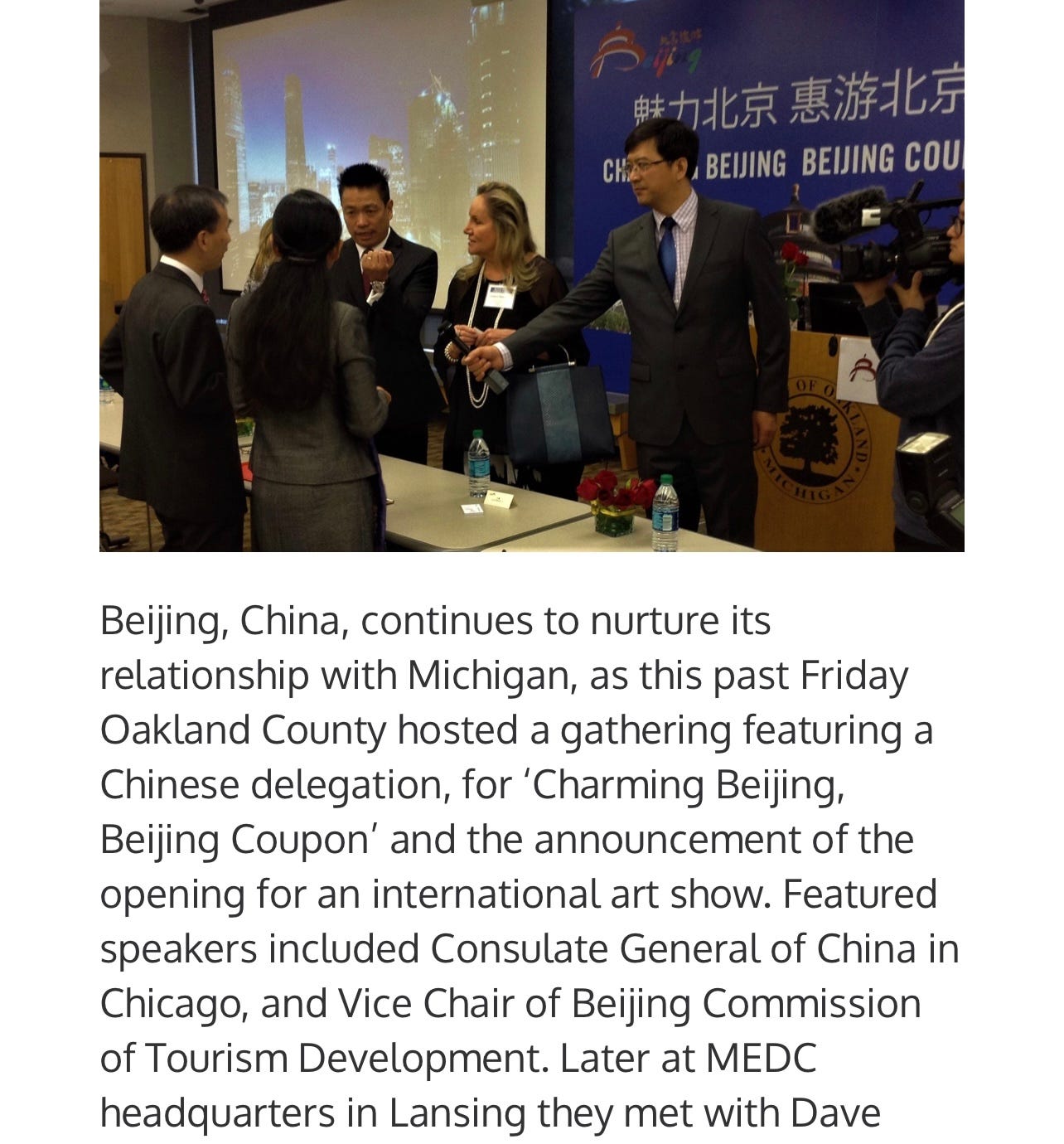
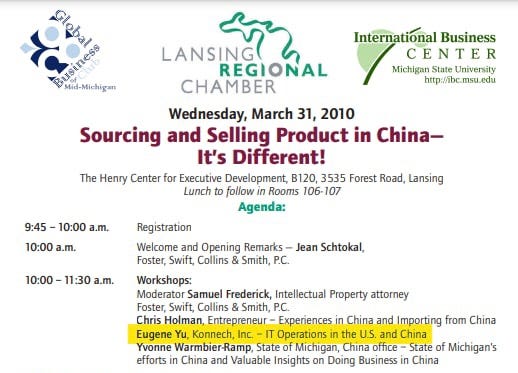

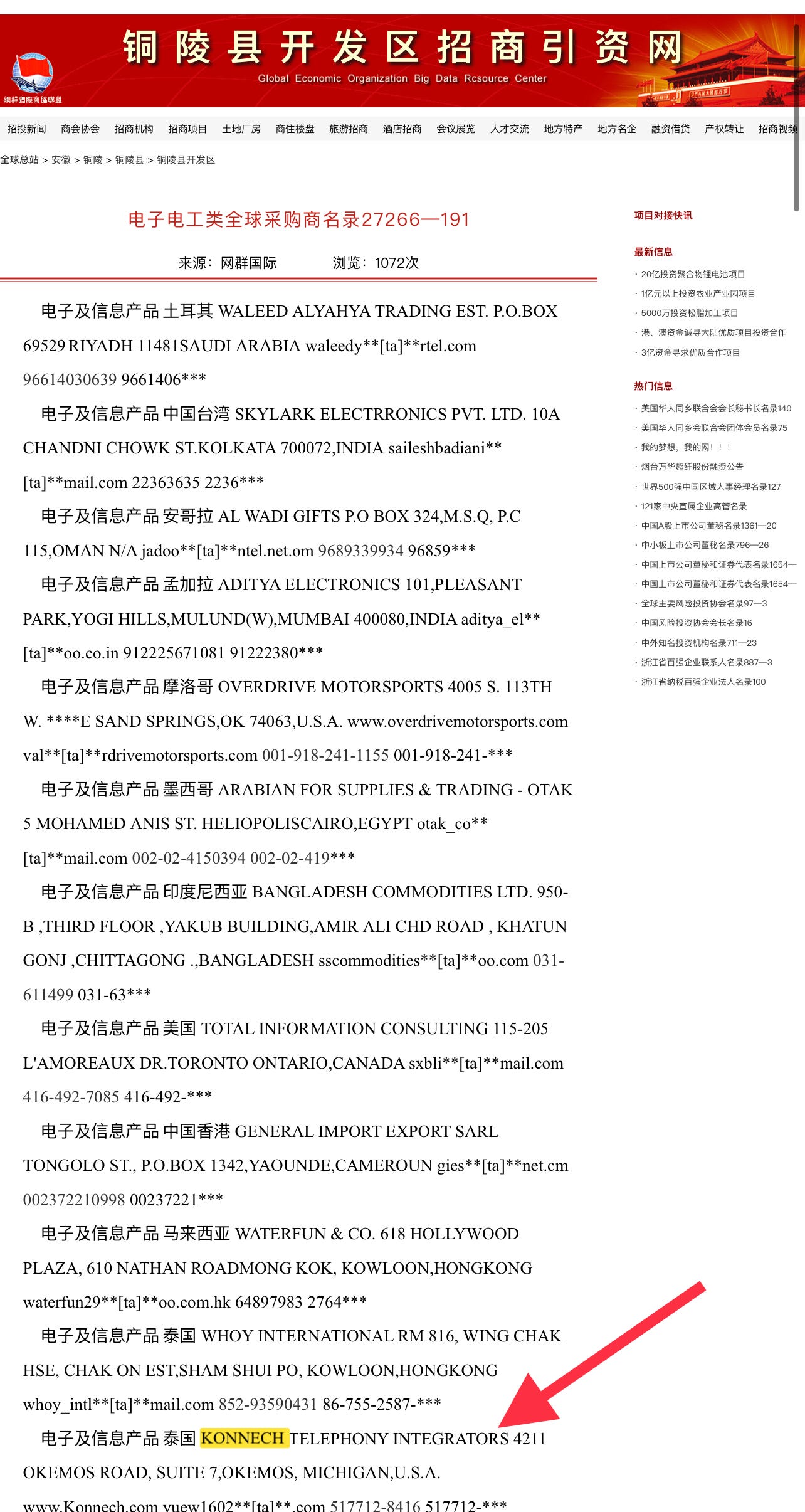
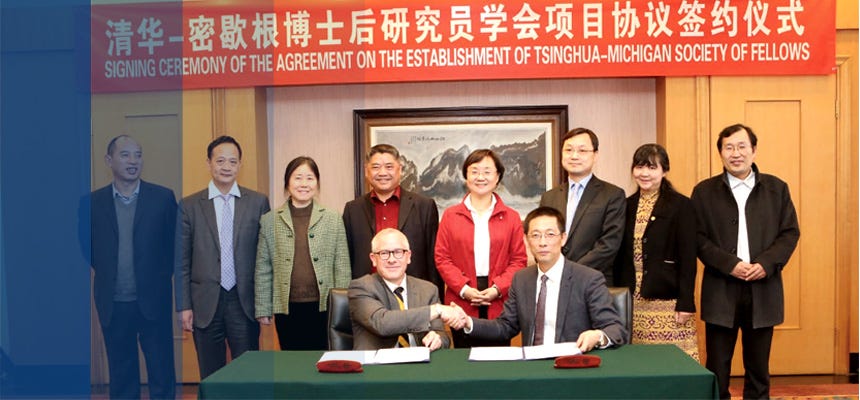
Excellent work. So many connections. I'm amazed that MSU was okay with that student group celebrating communism. The CCP must have been thinking for years - these Americans are so stupid, and easily fooled. They infiltrated every facet of society. And we now know the Bidens were partners in crime with the CCP, and committed treason. Joe has committed treason right from the oval office.
Incredible deep dive! I truly believe that Massachusetts is also another beach head, they have a Chinese company making the trams for Boston subway ! Which I could do what you have done to expose Michigan in all the Elite schools, pharma, politicians, In COMMICHUSETTS!